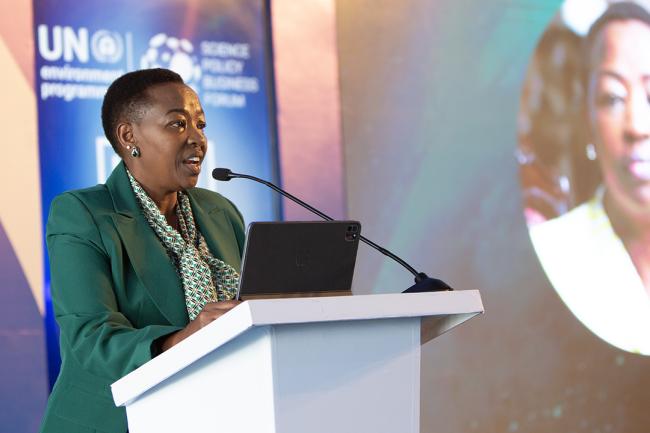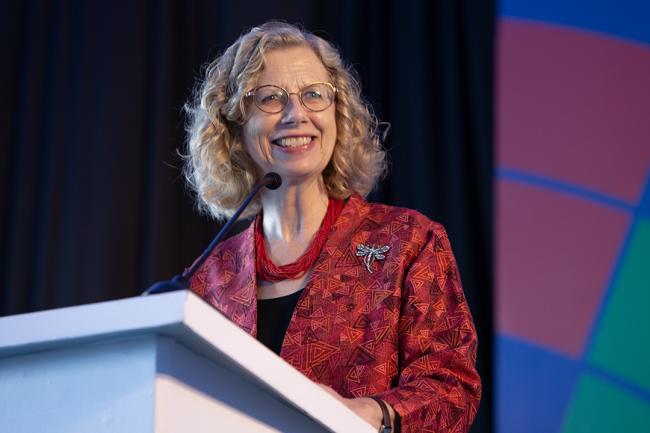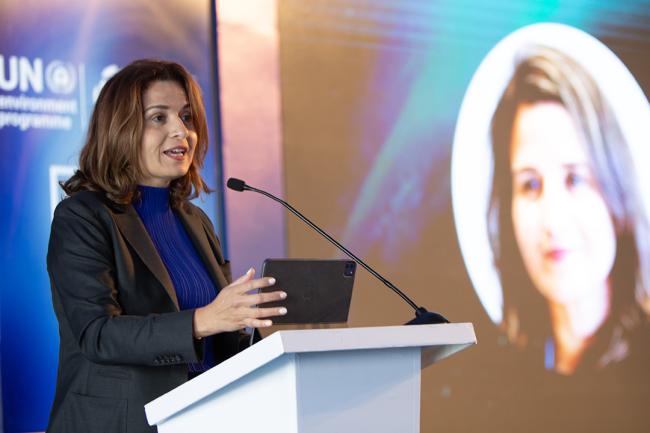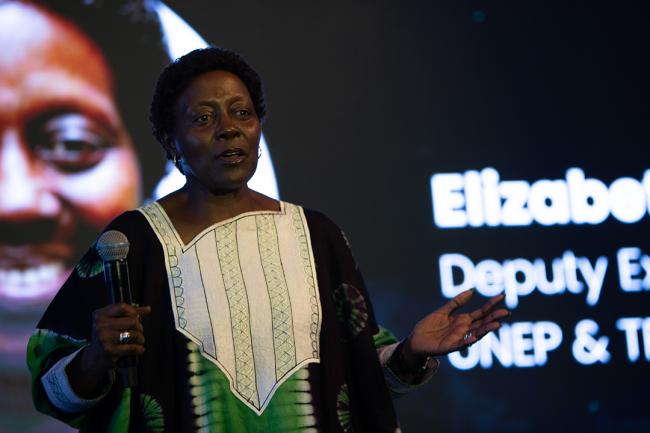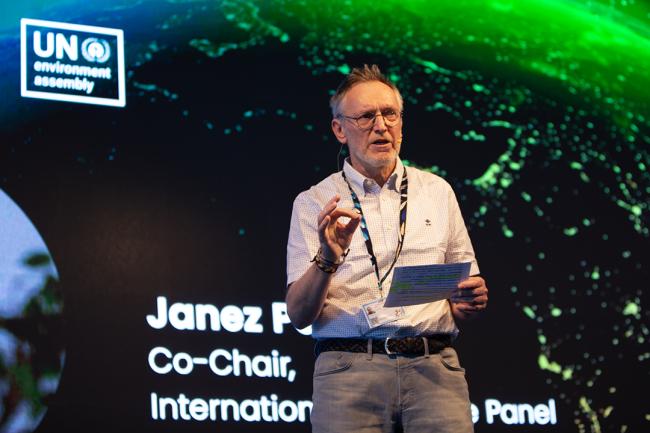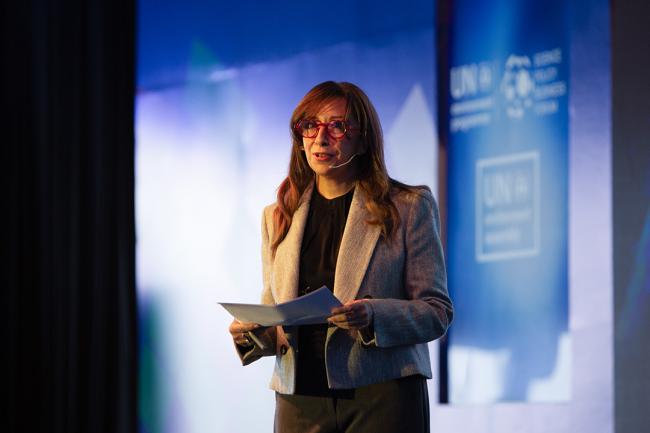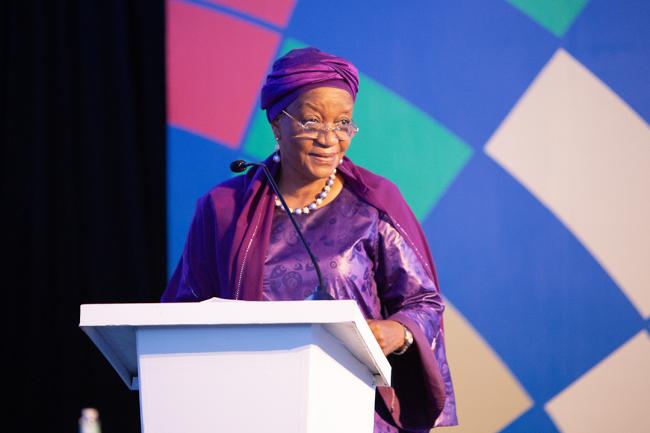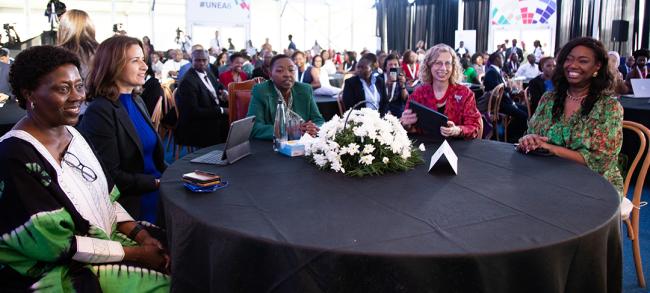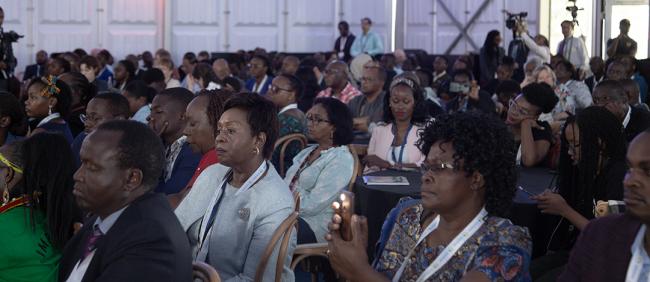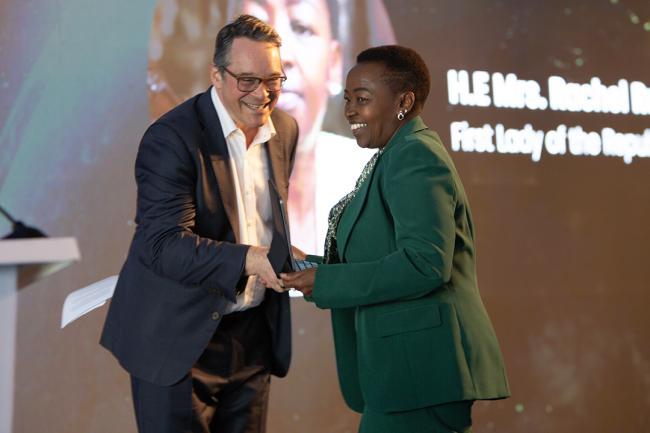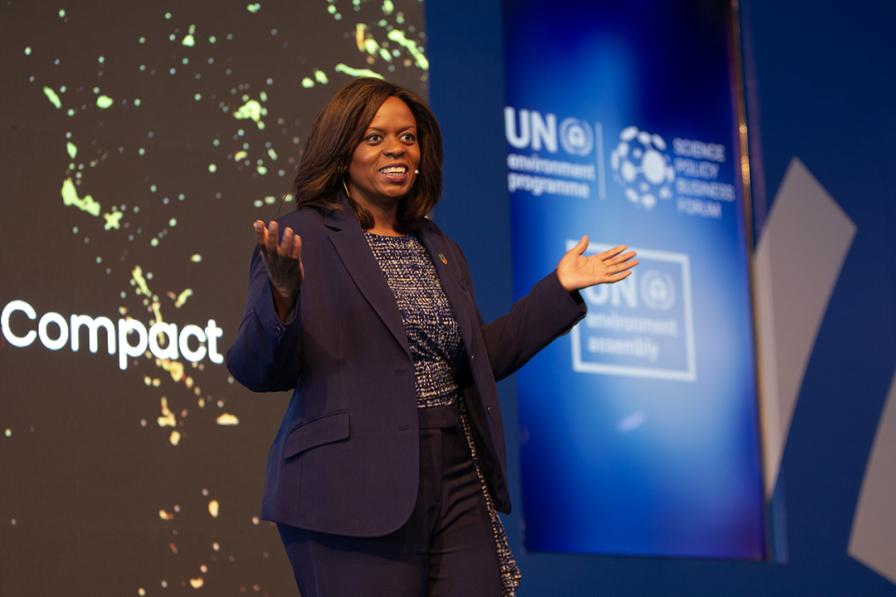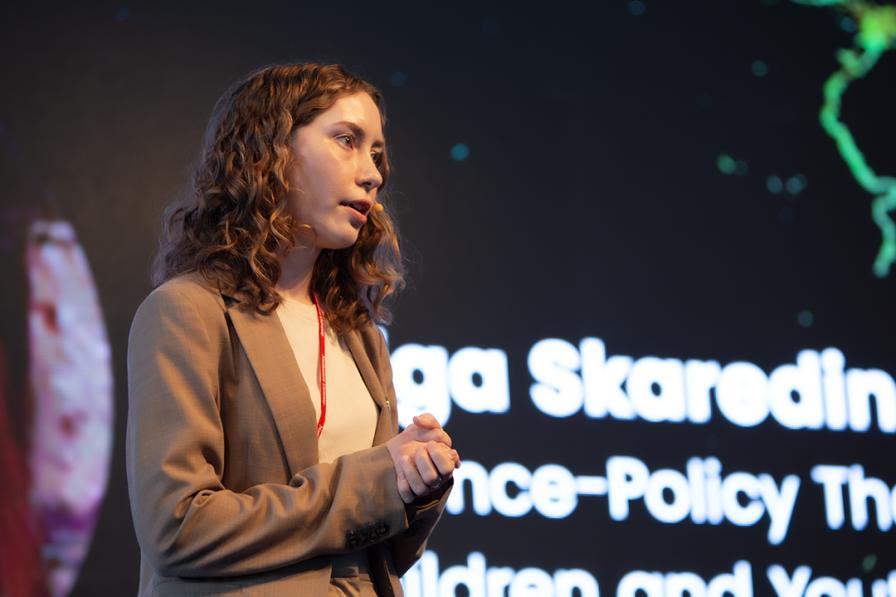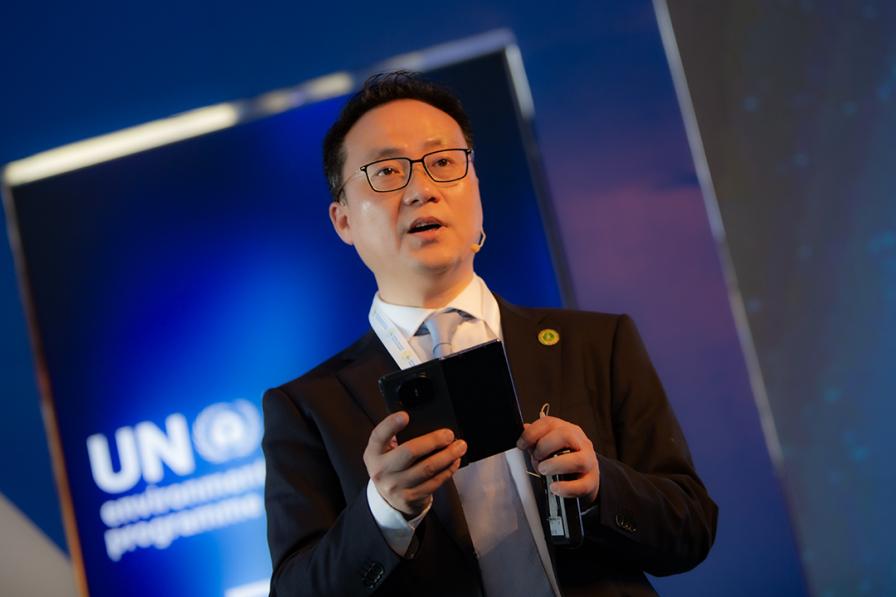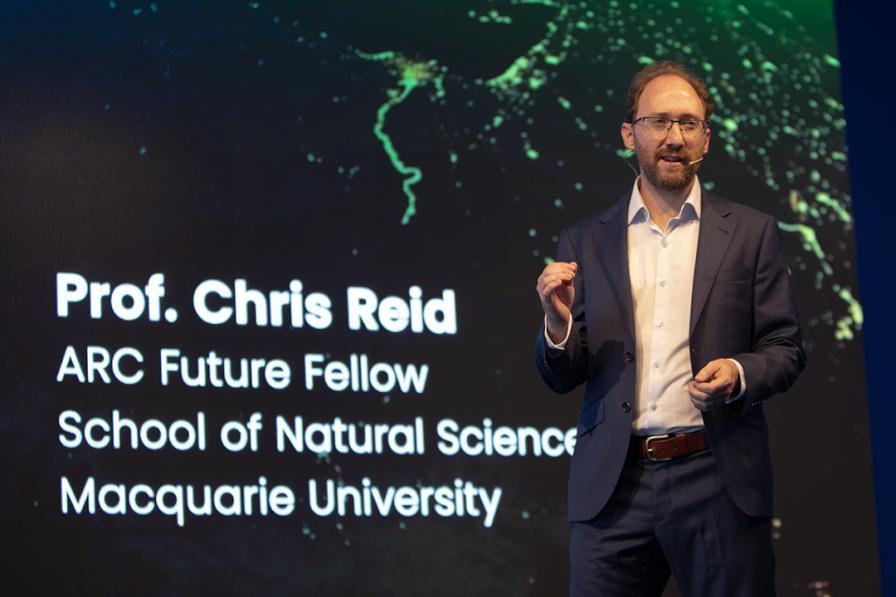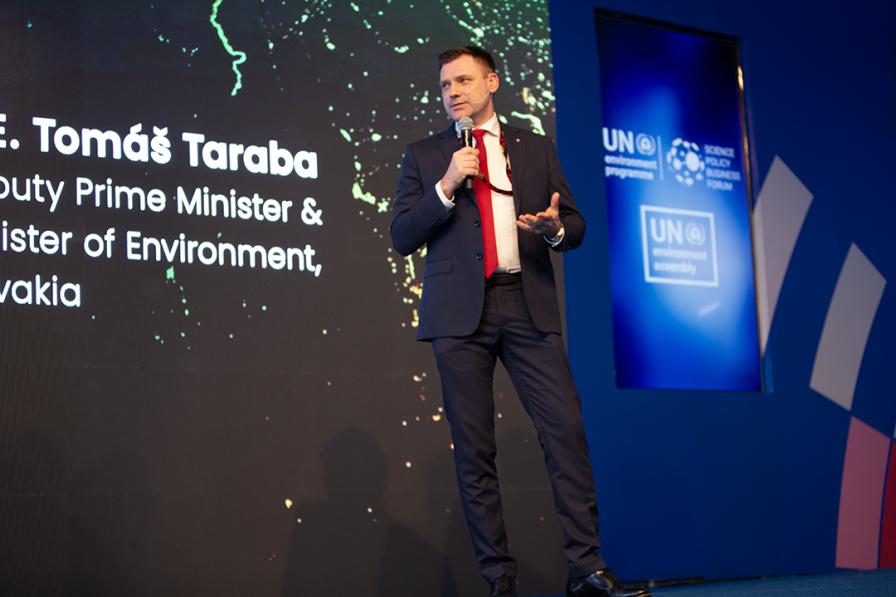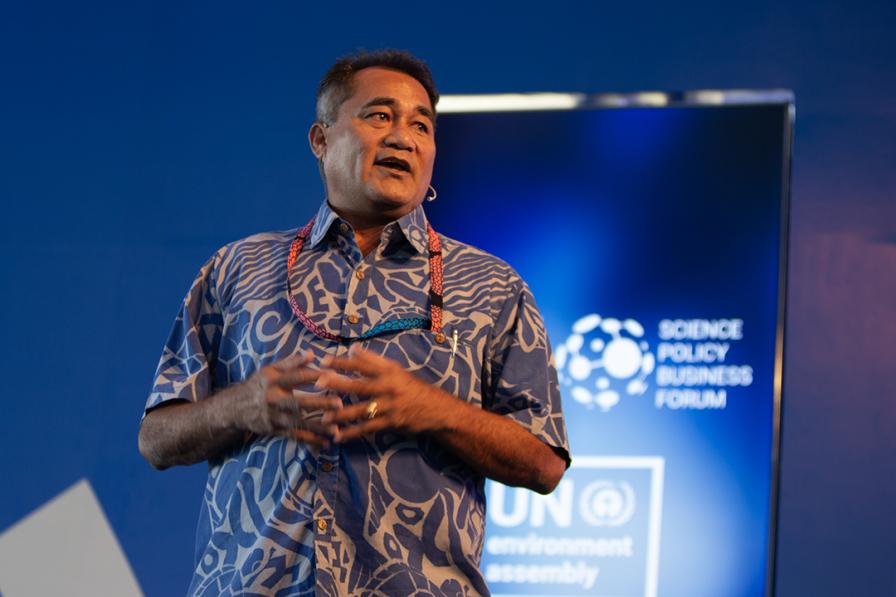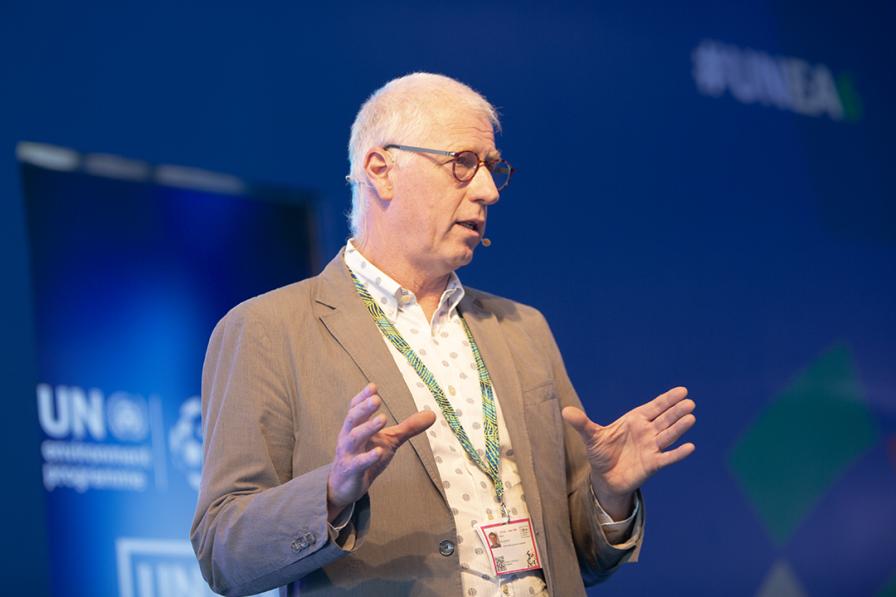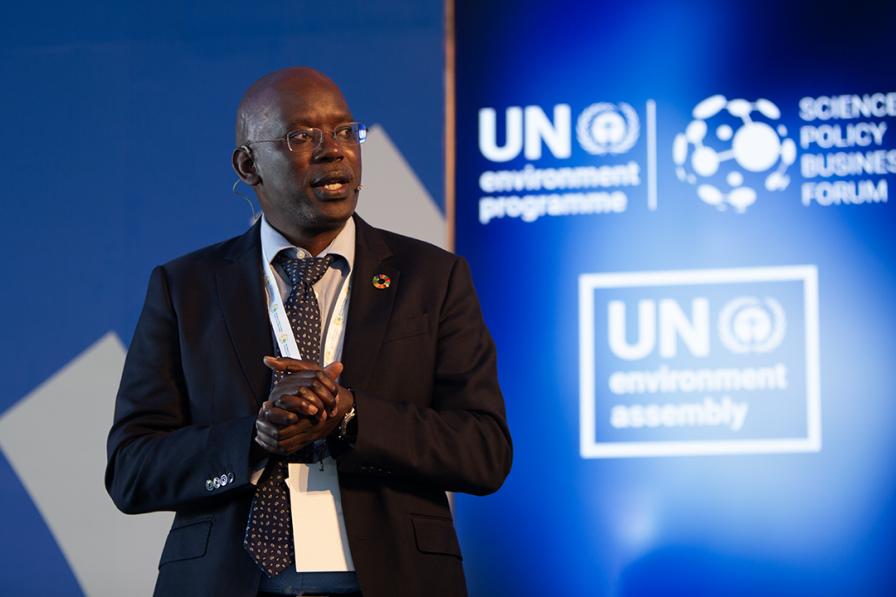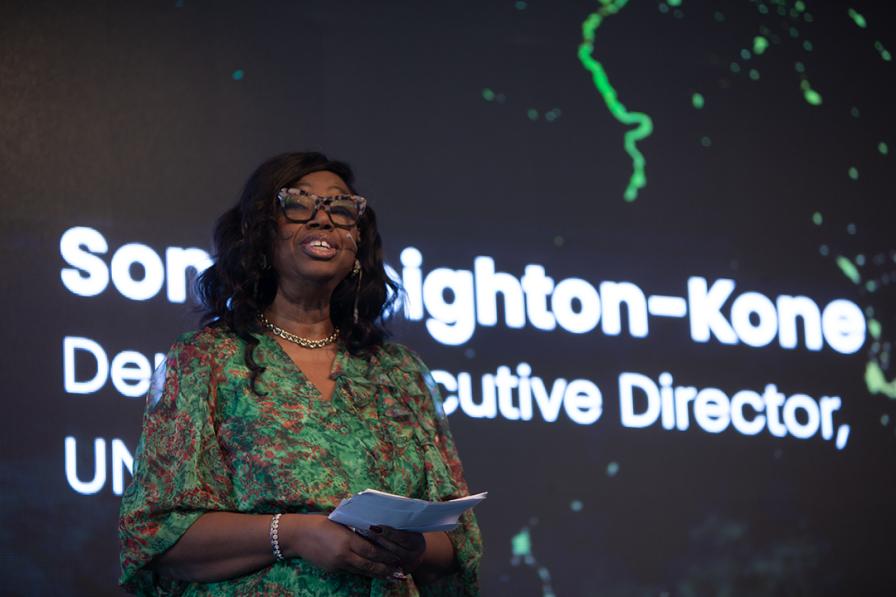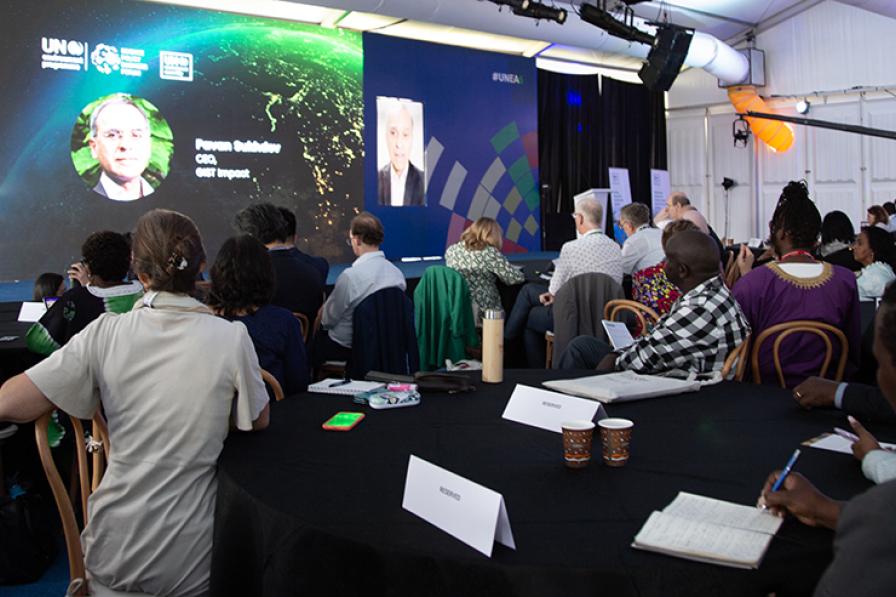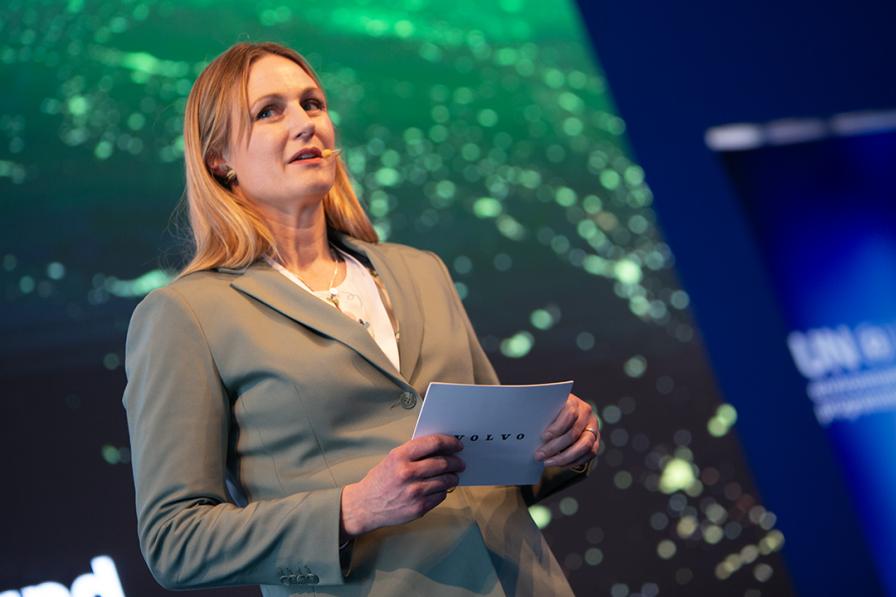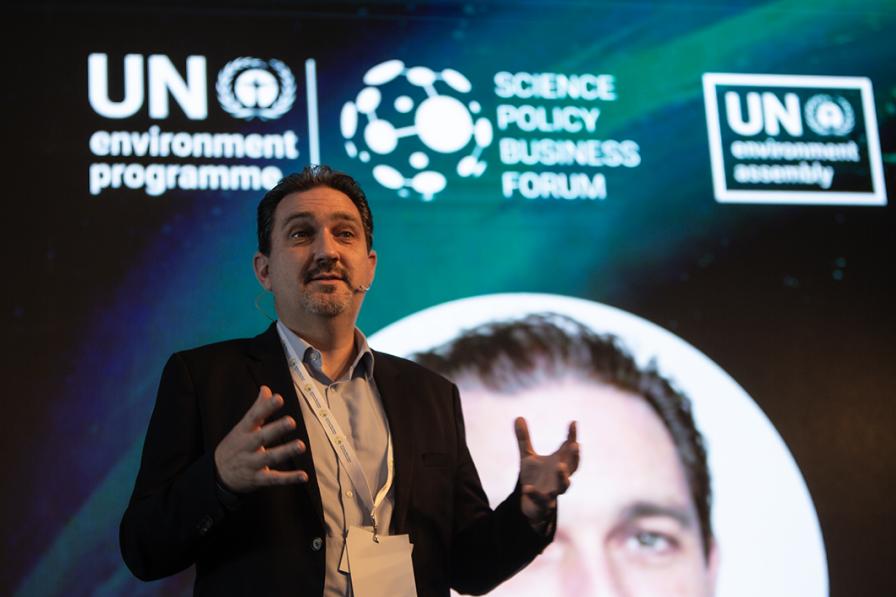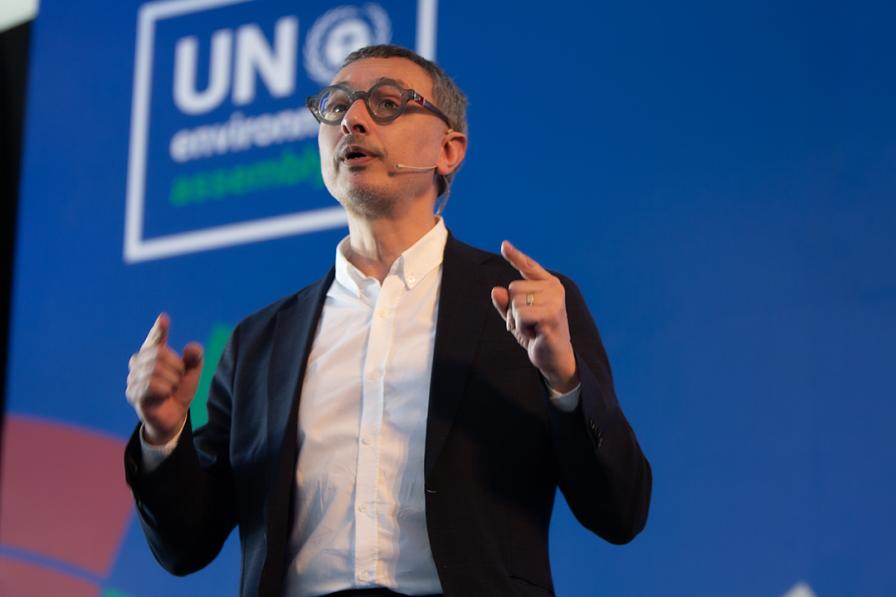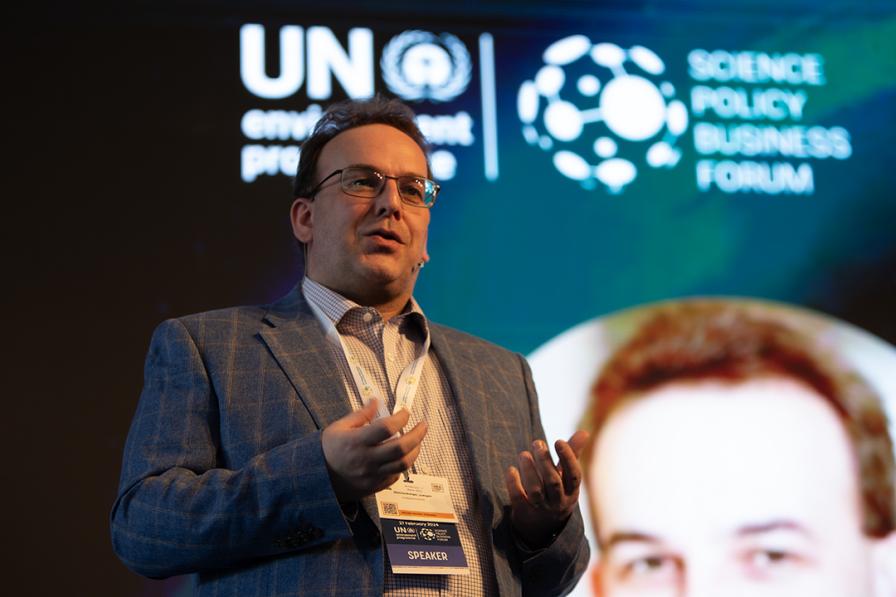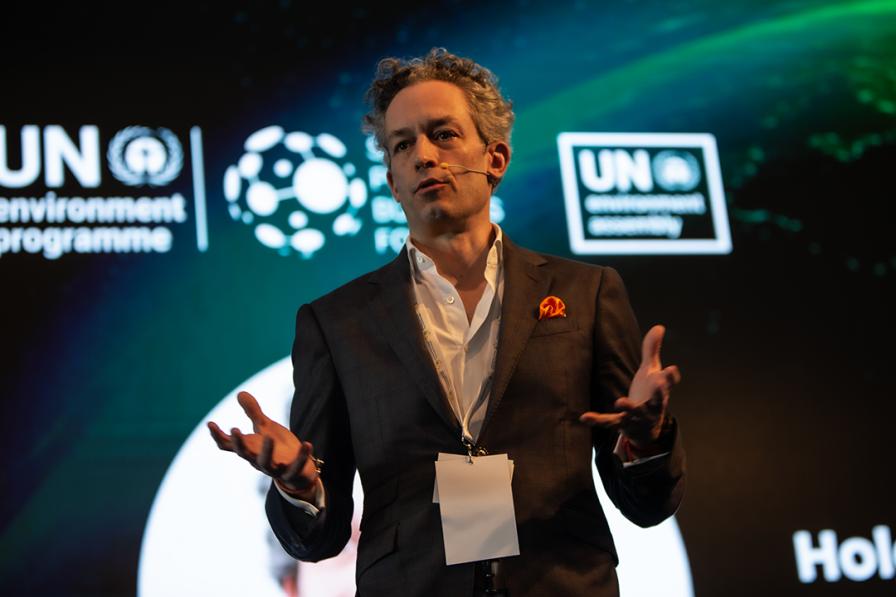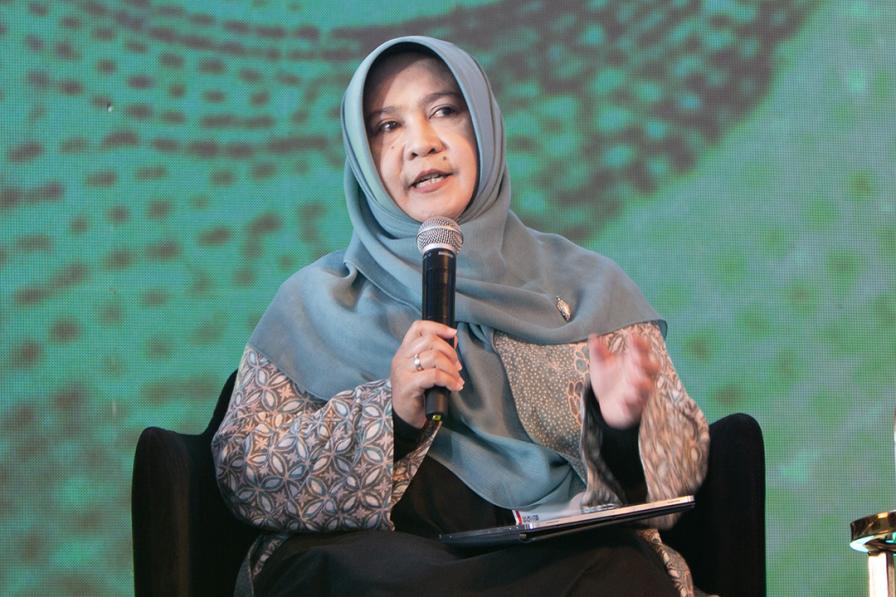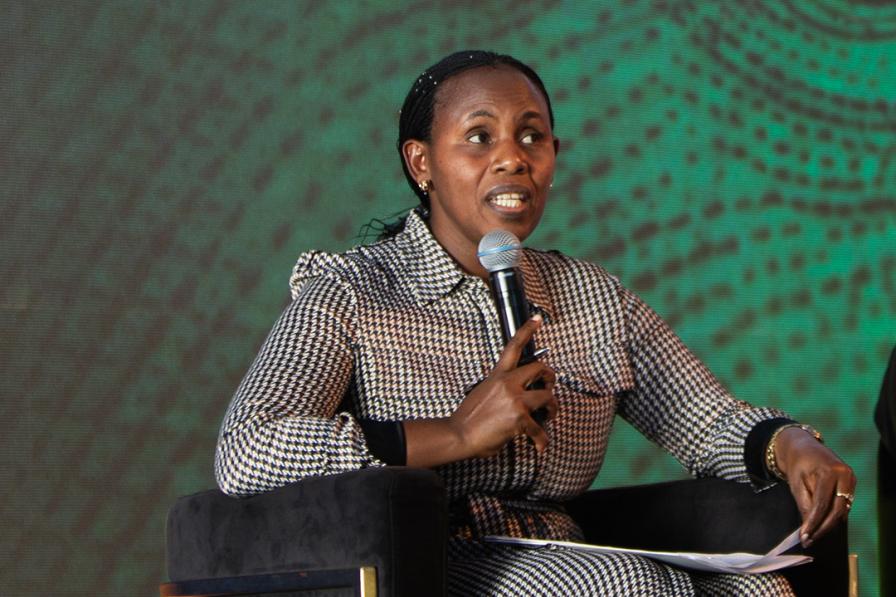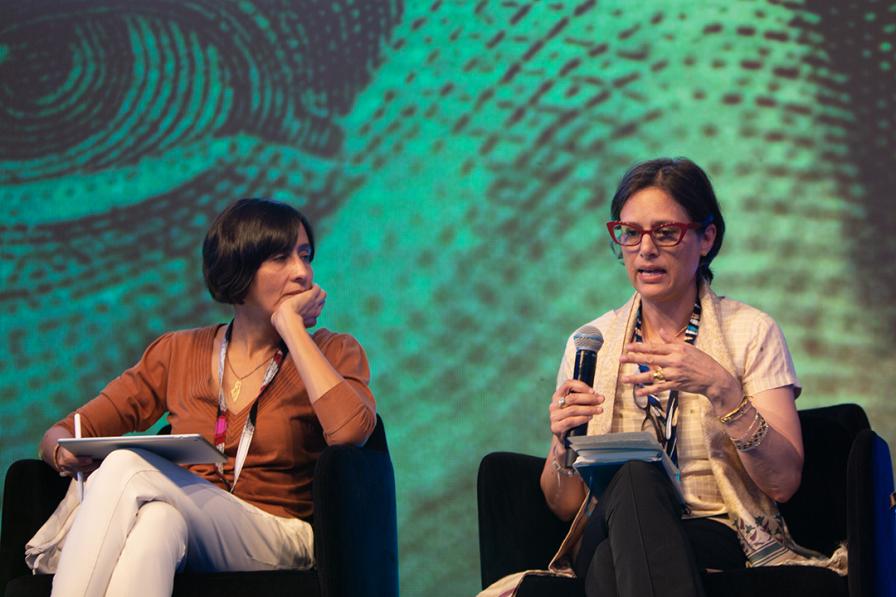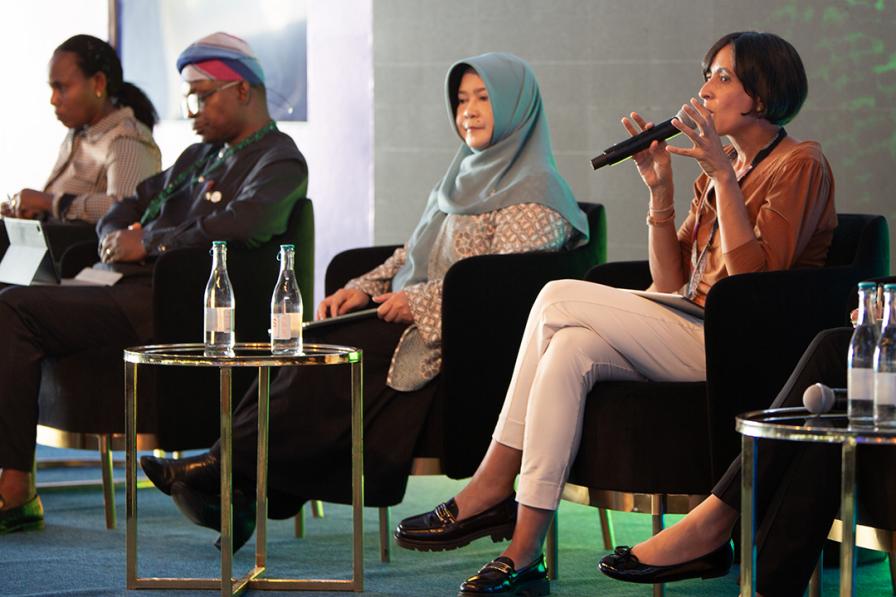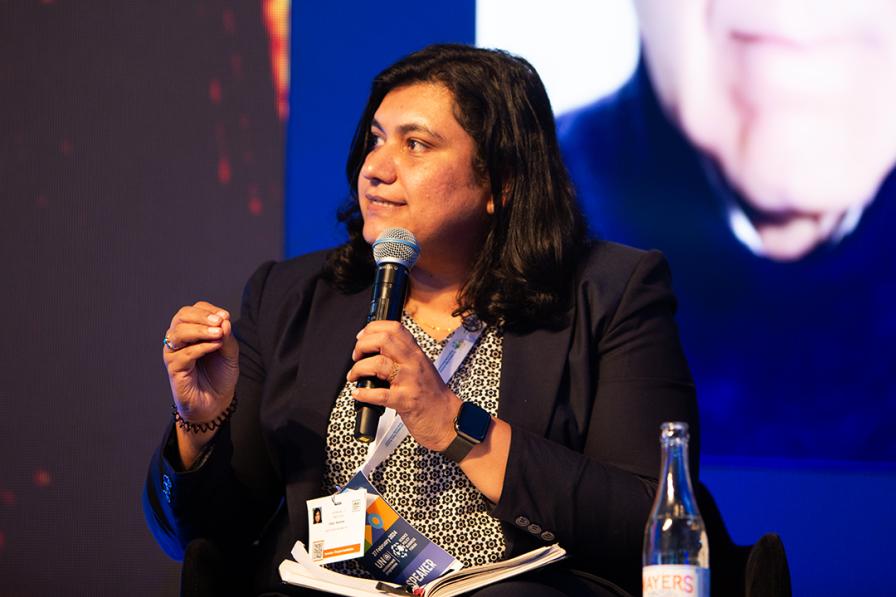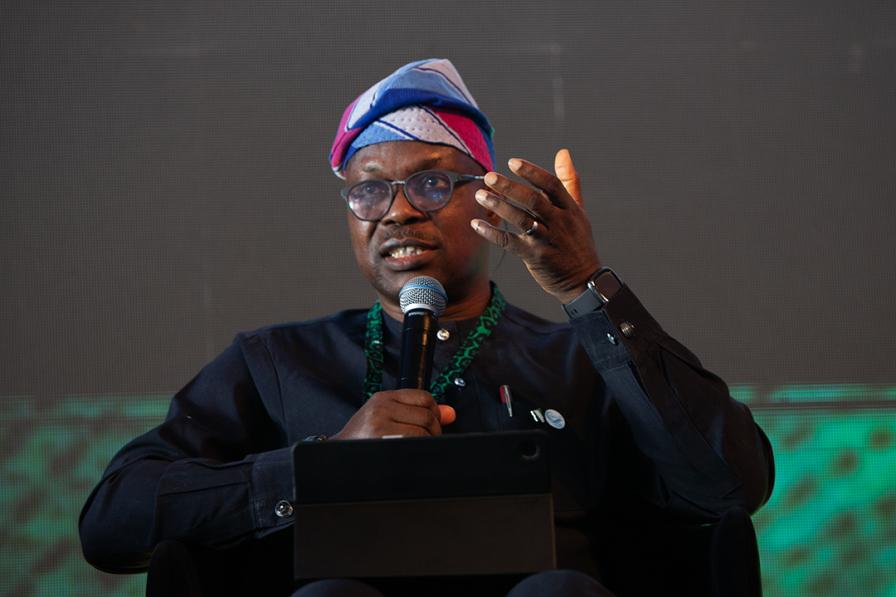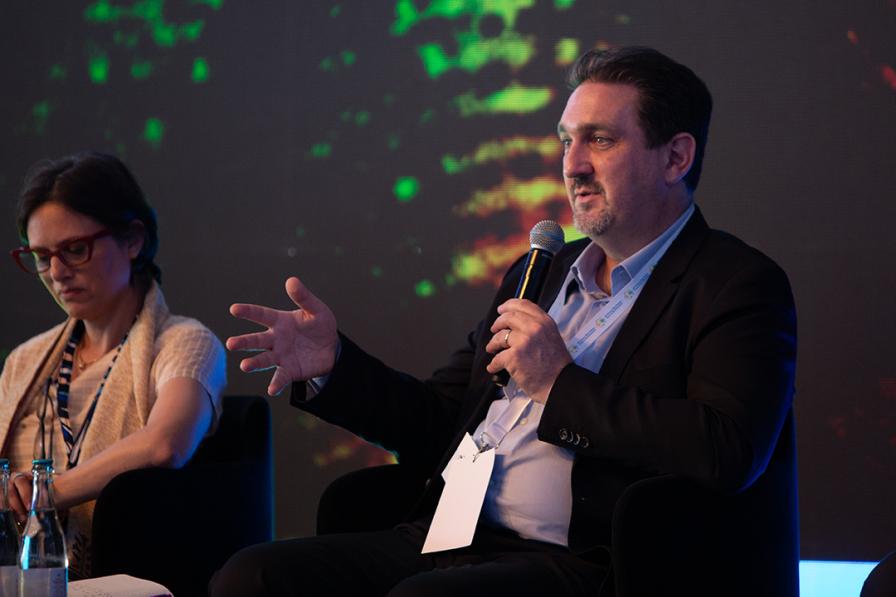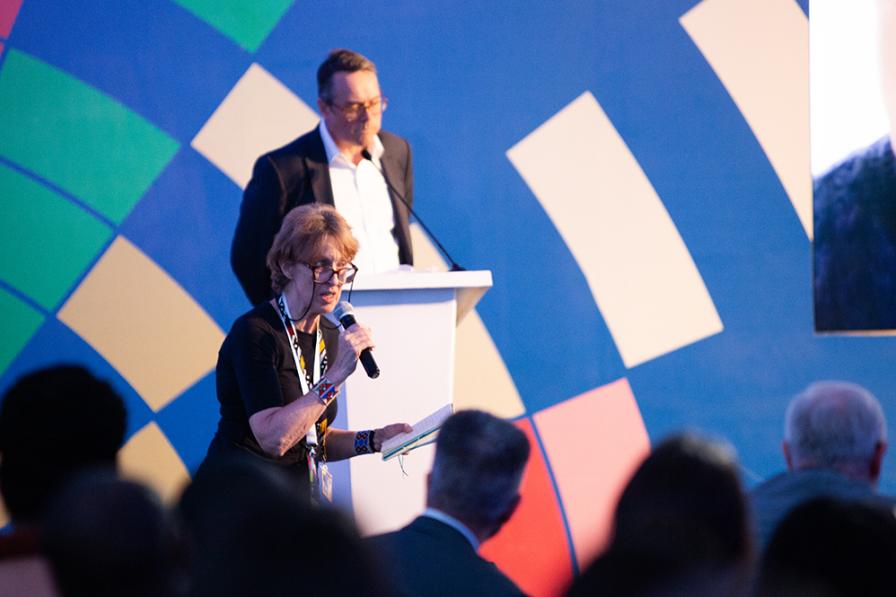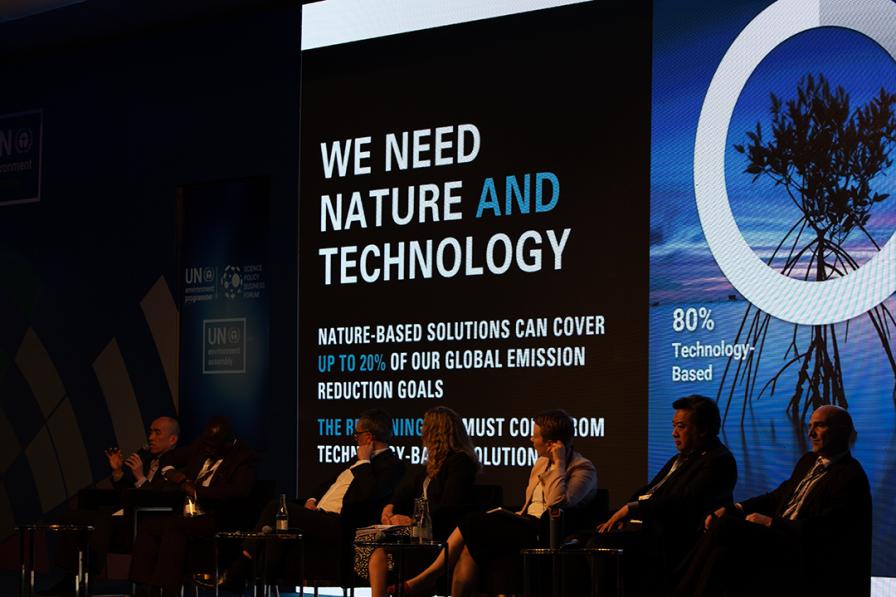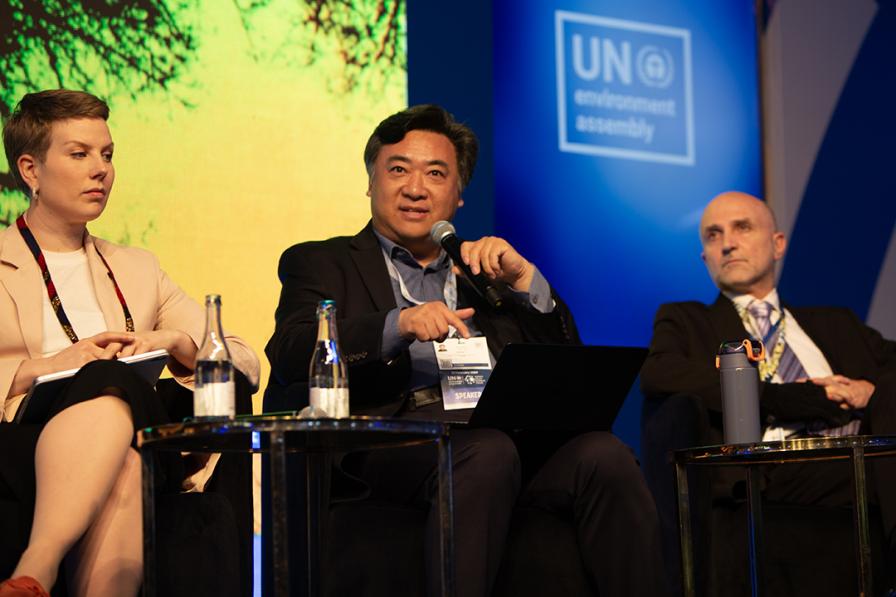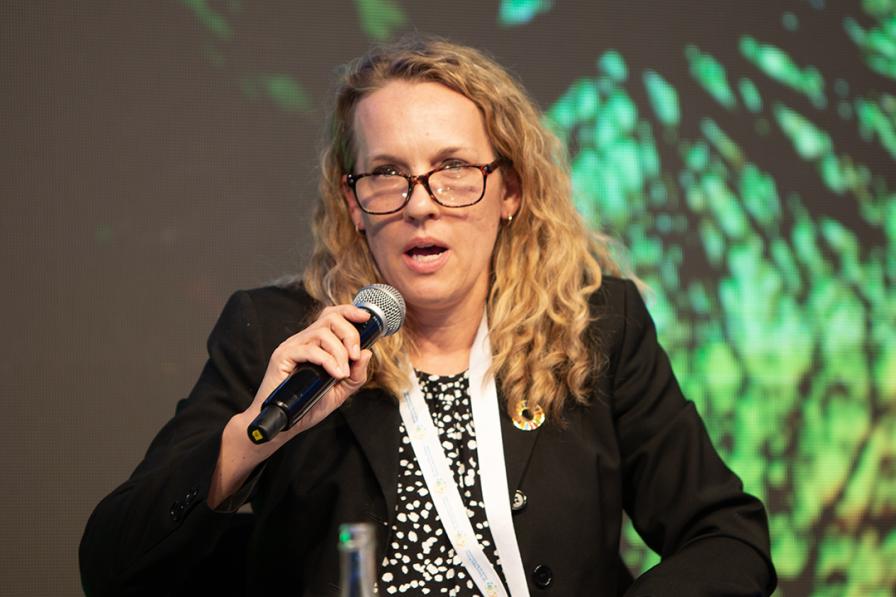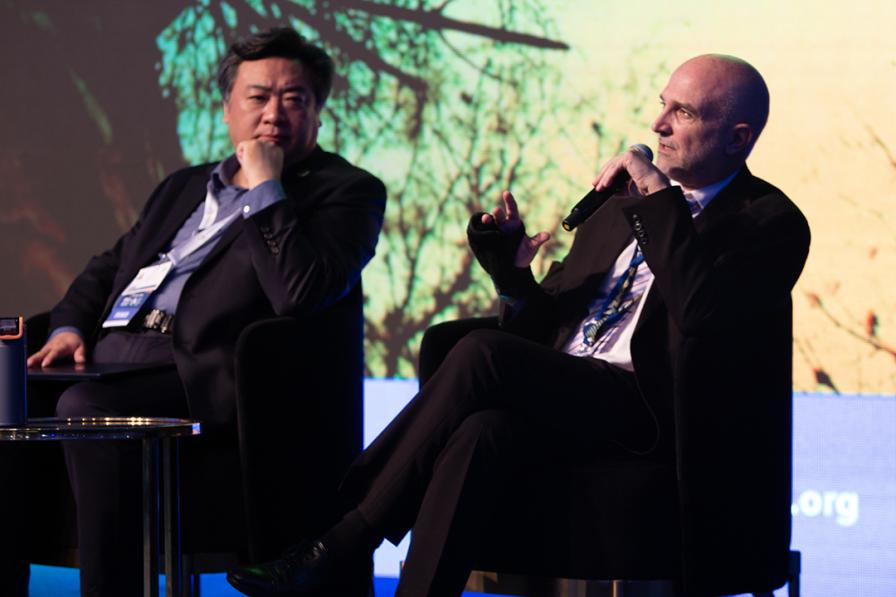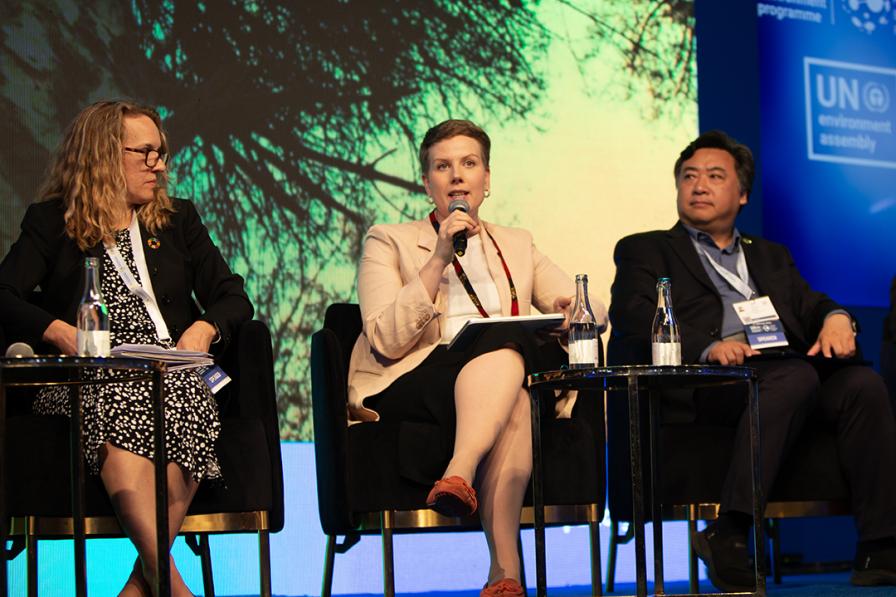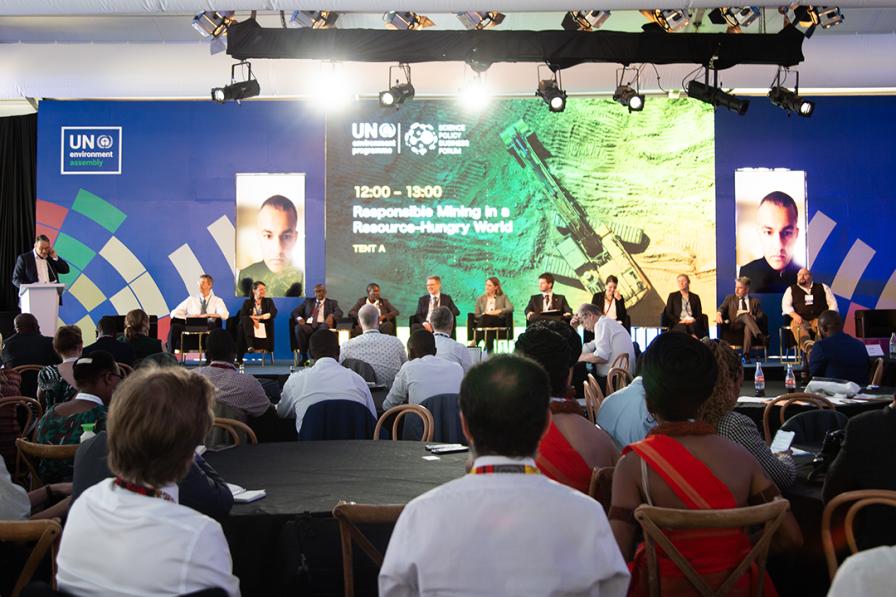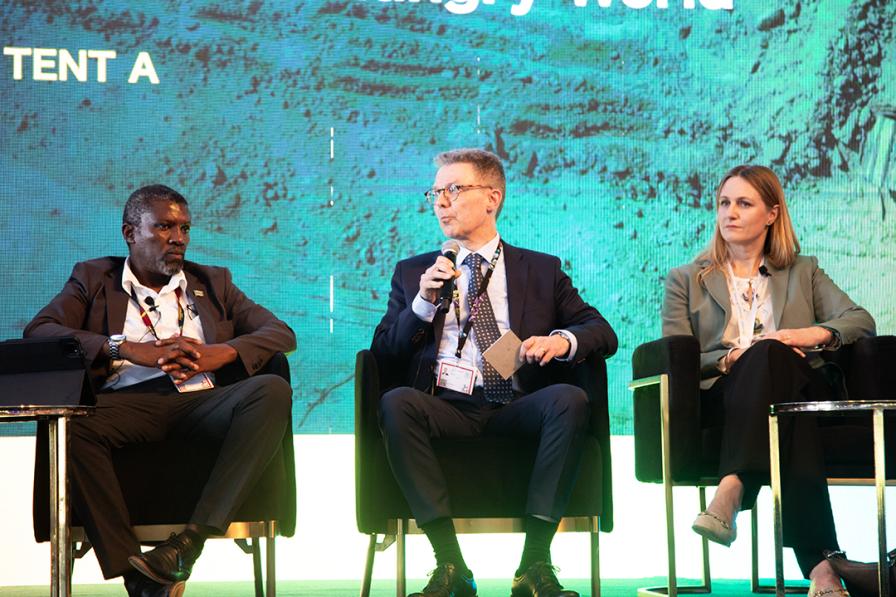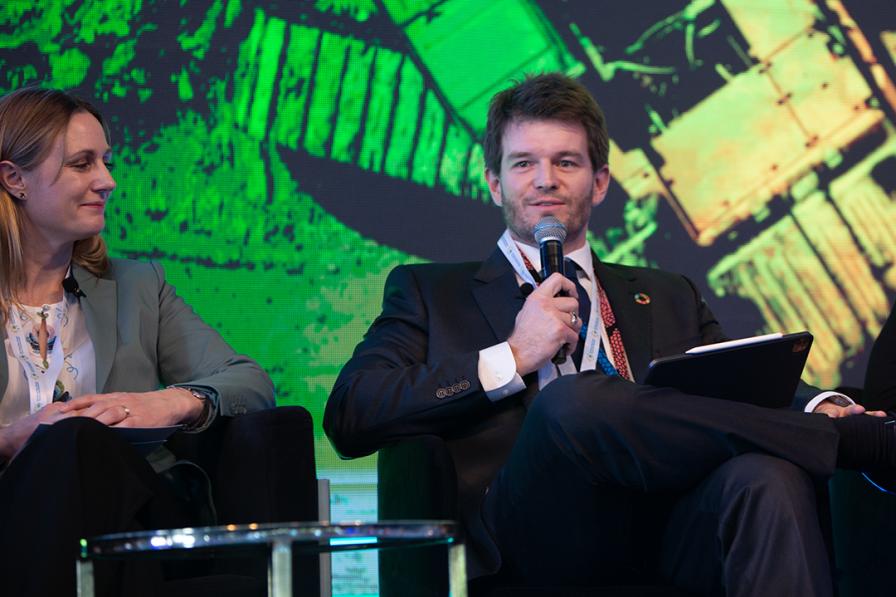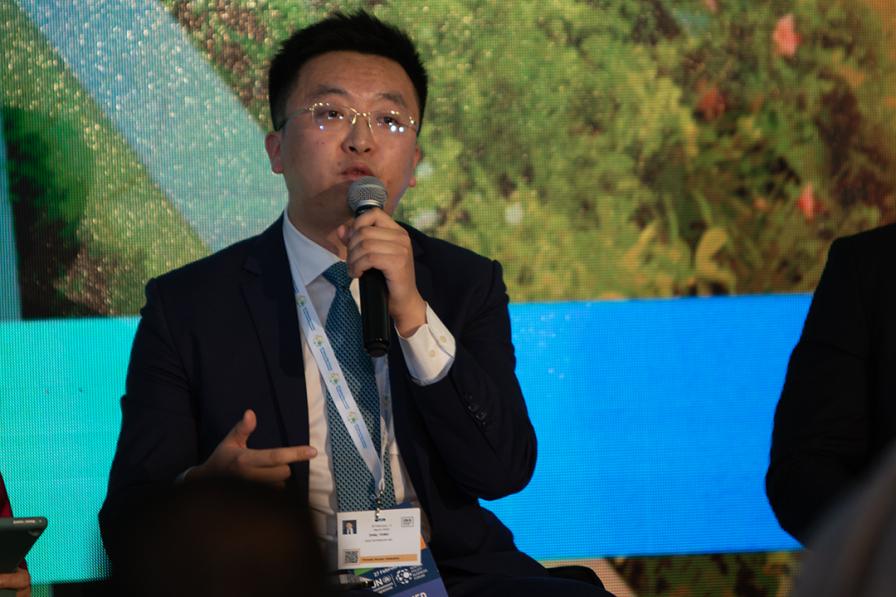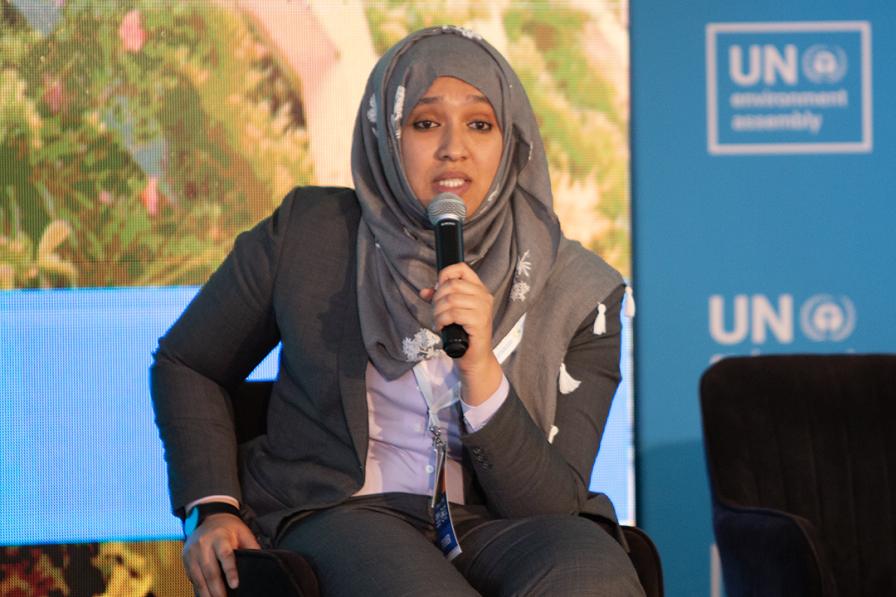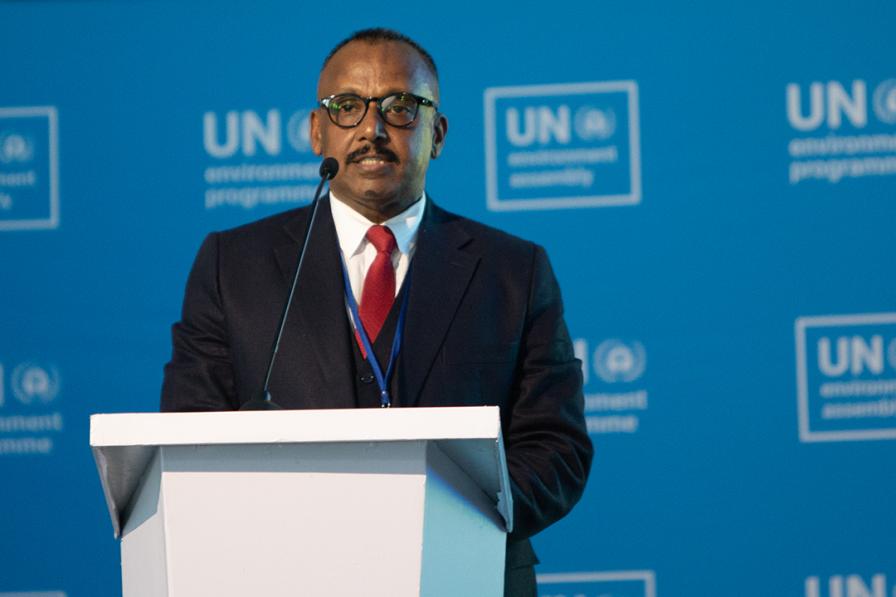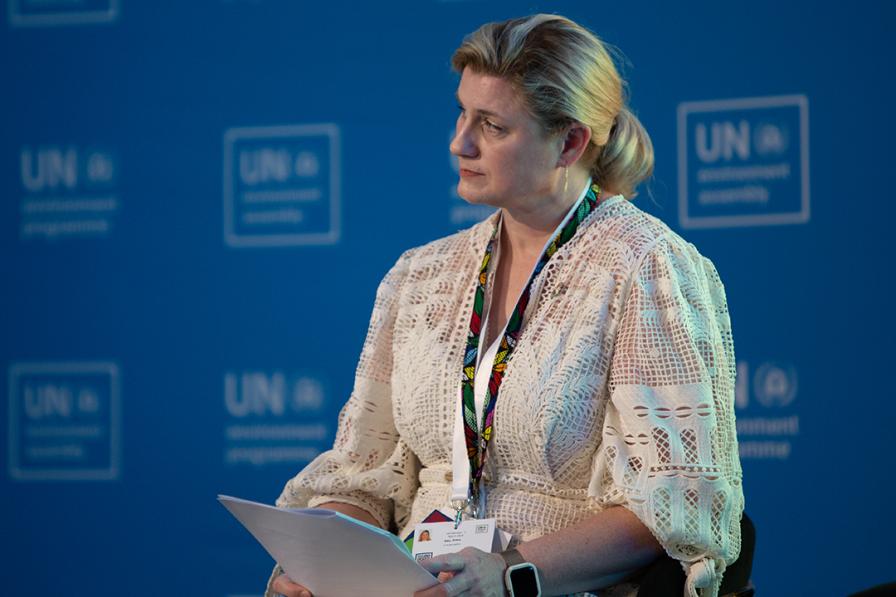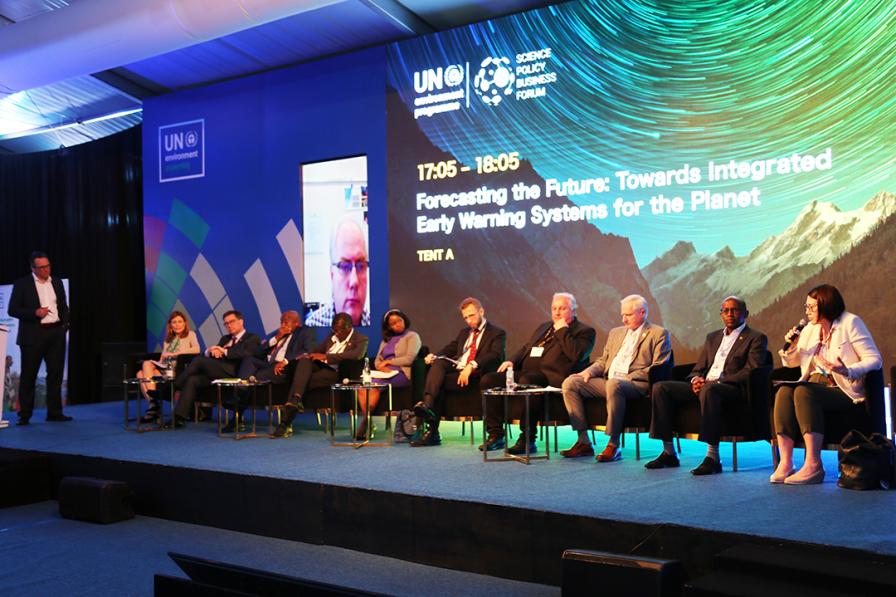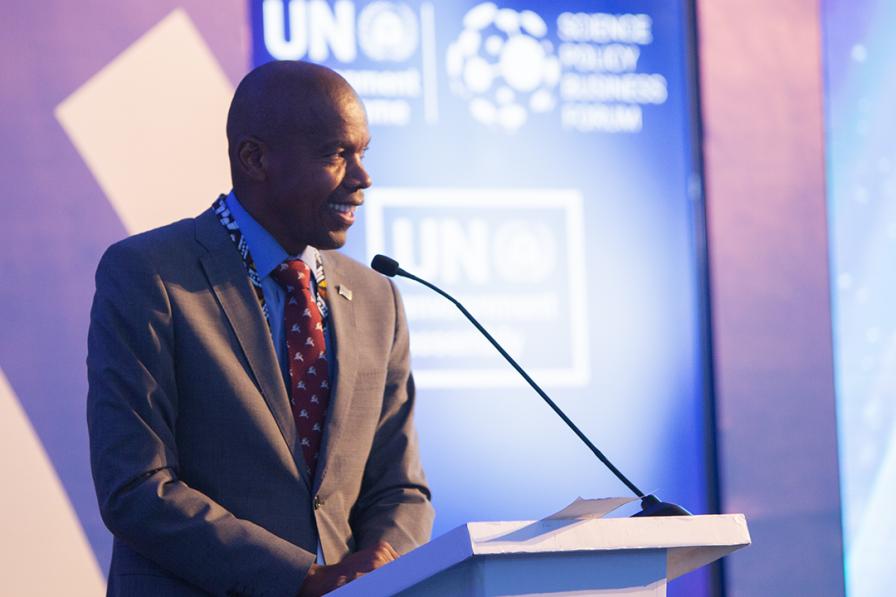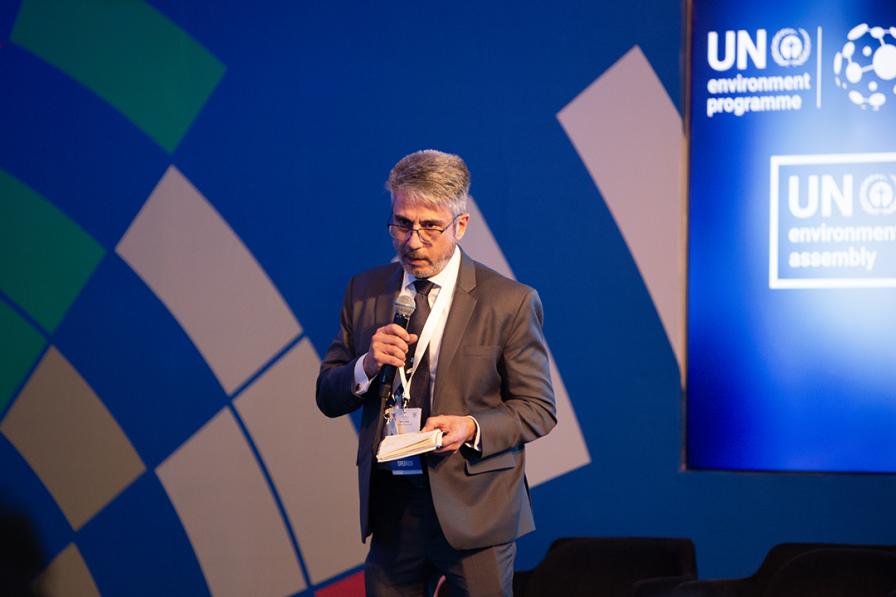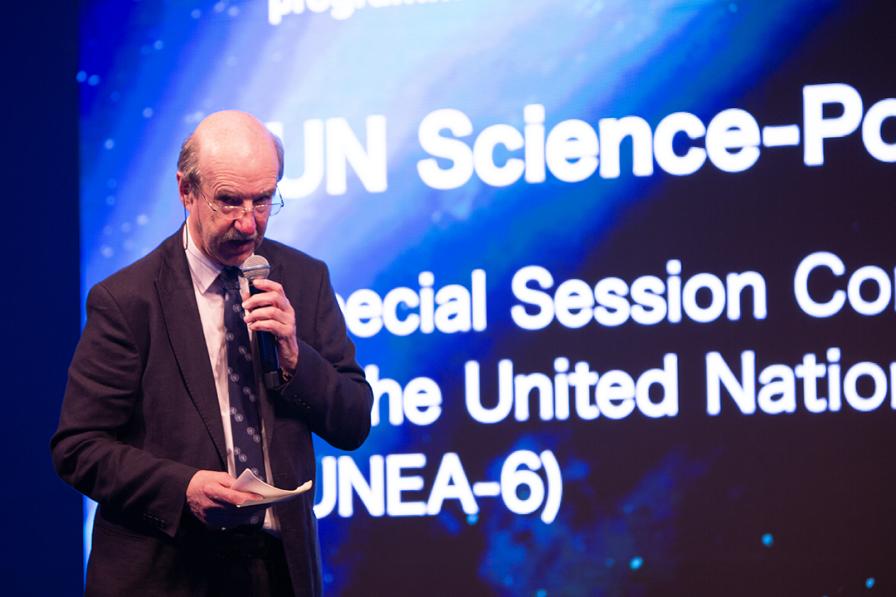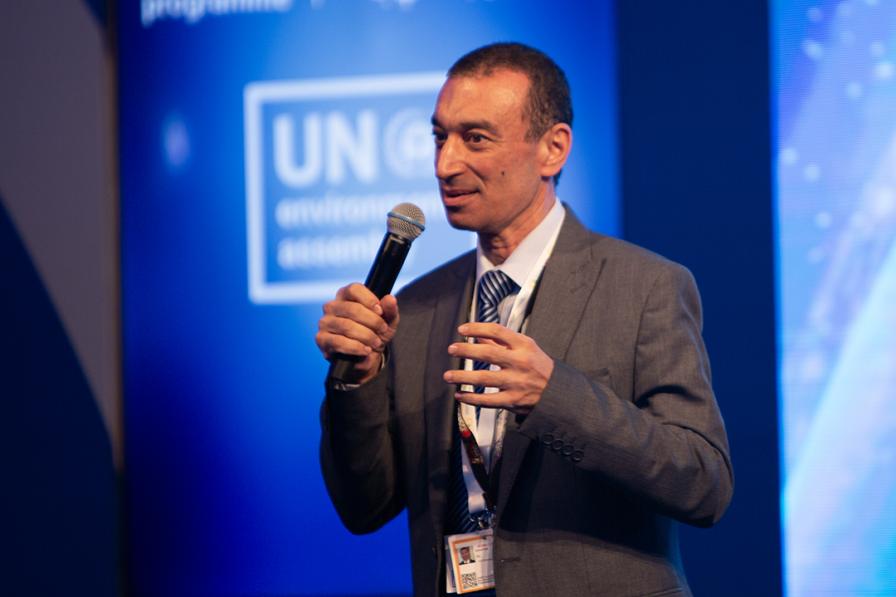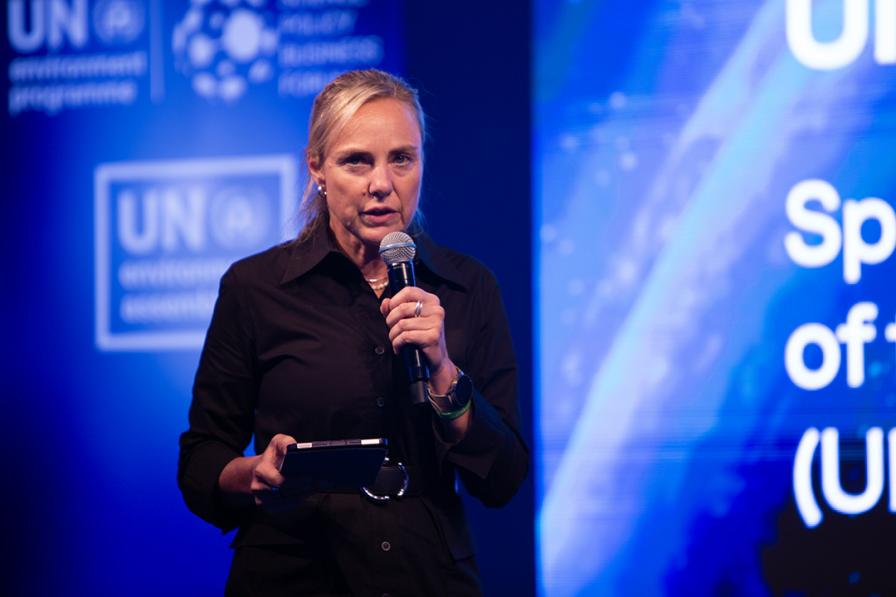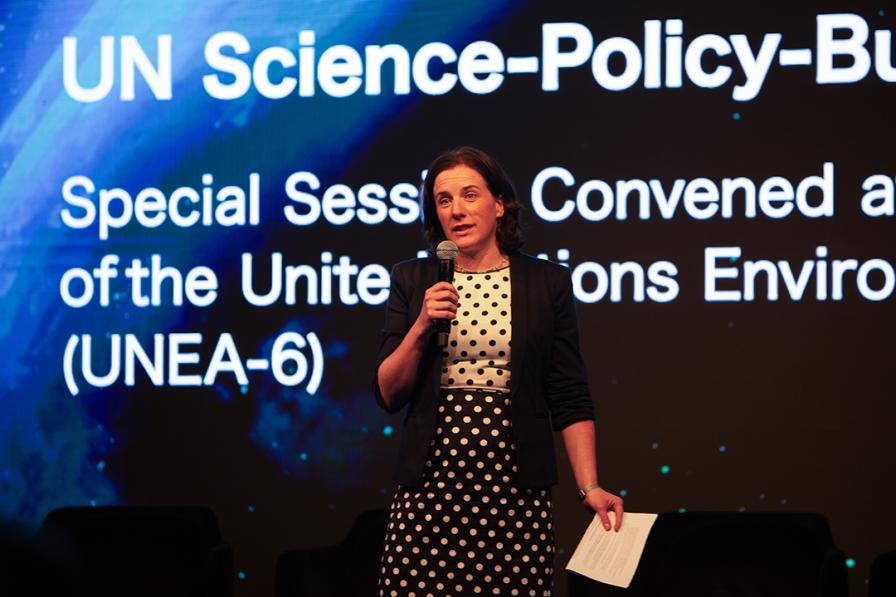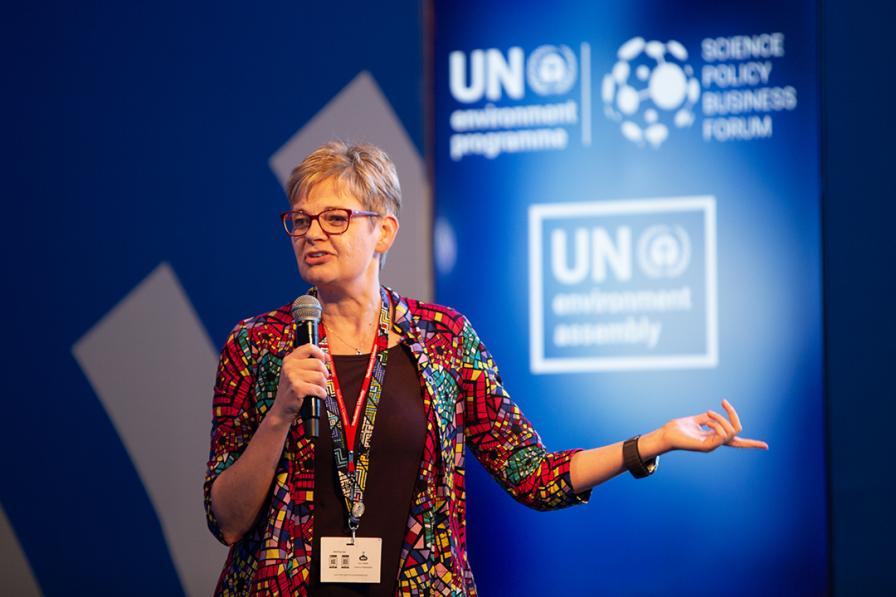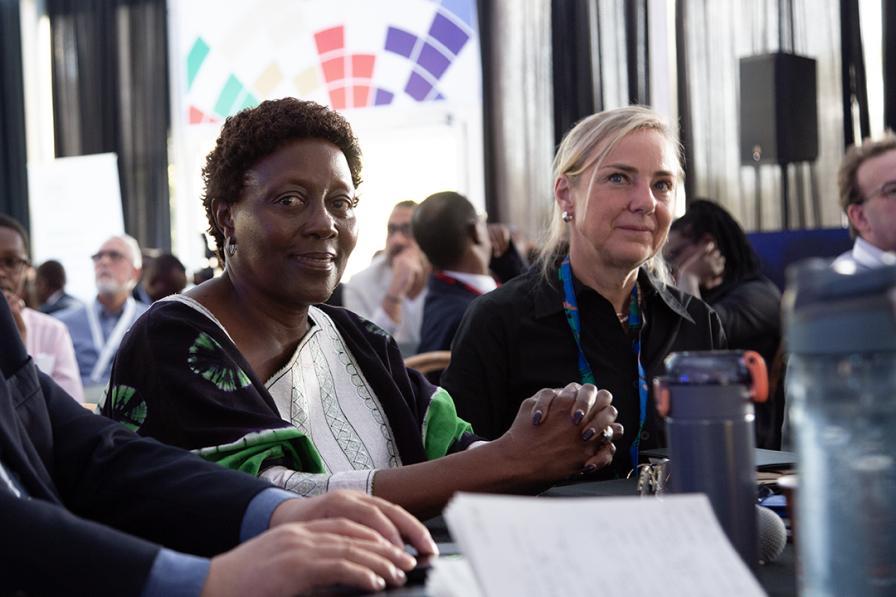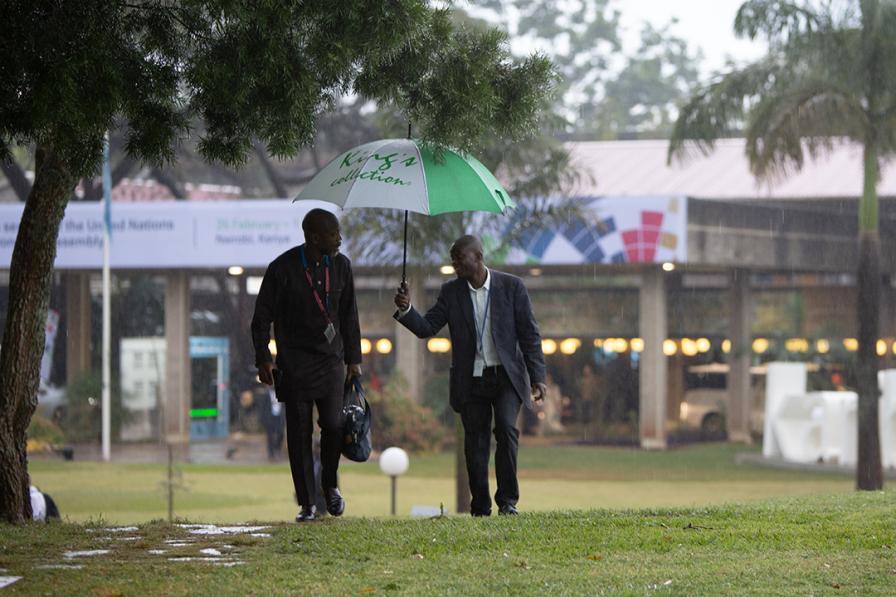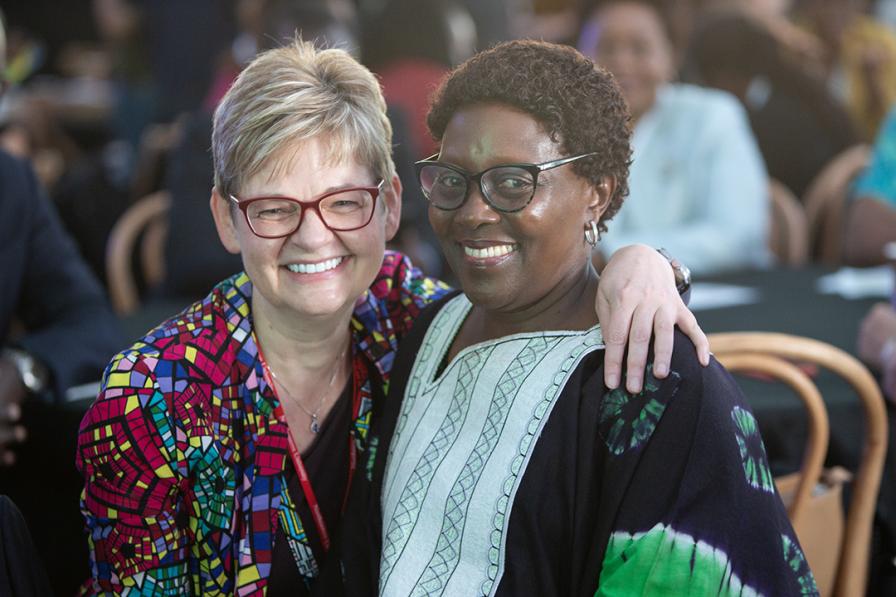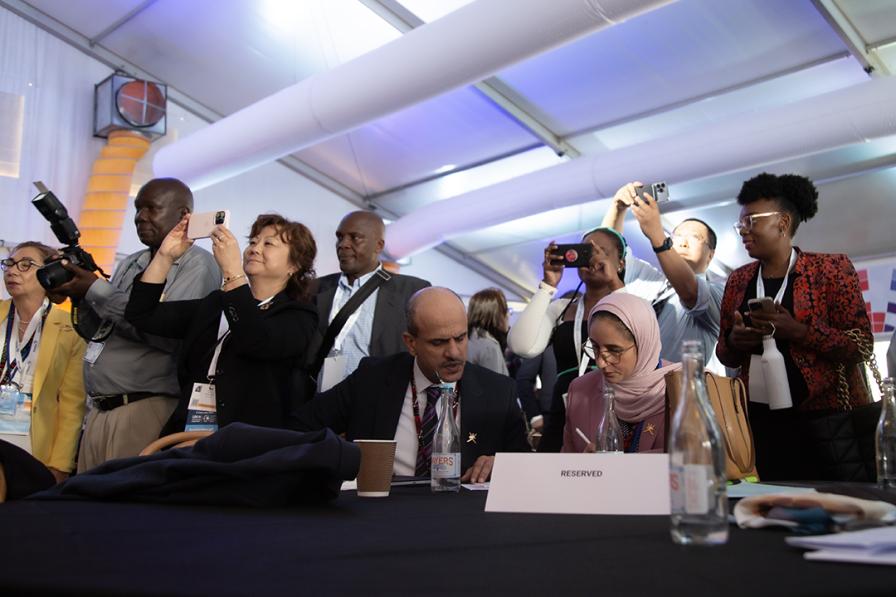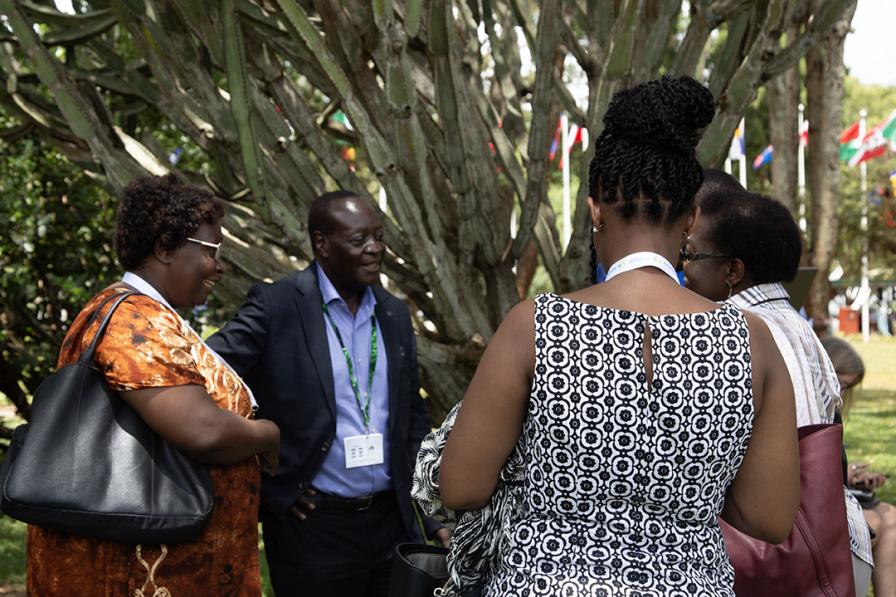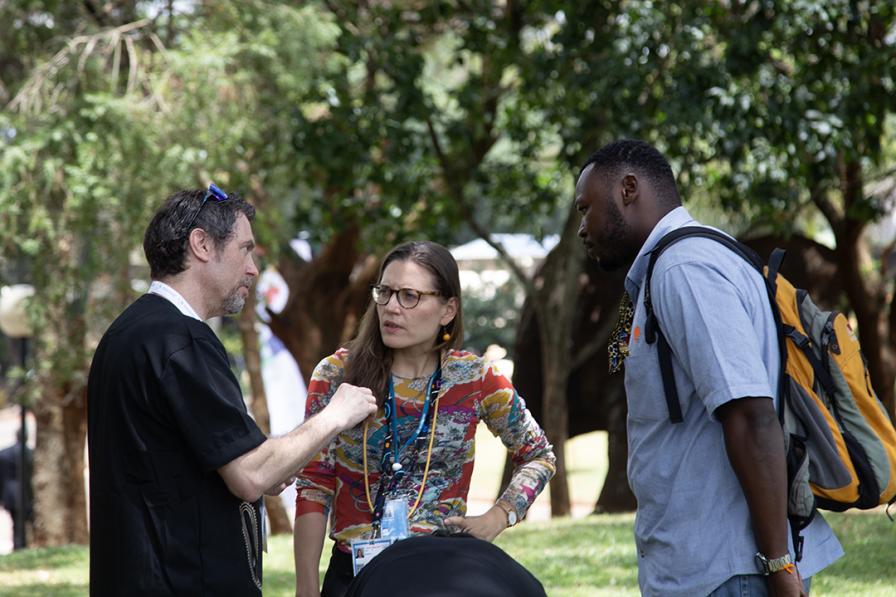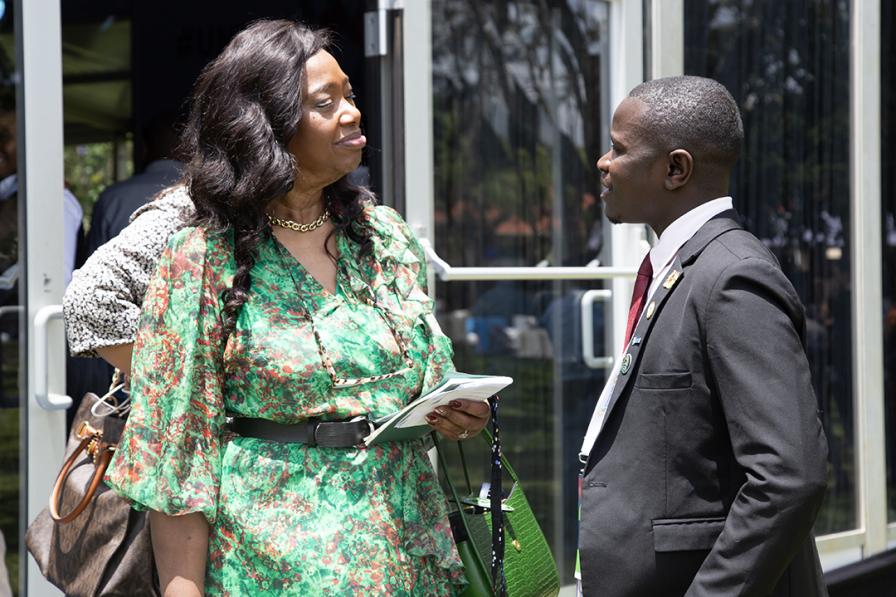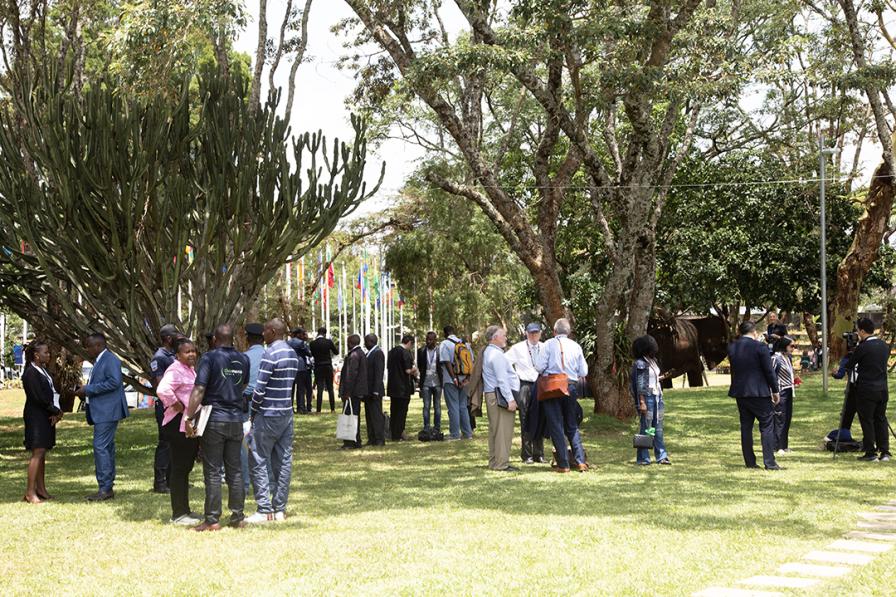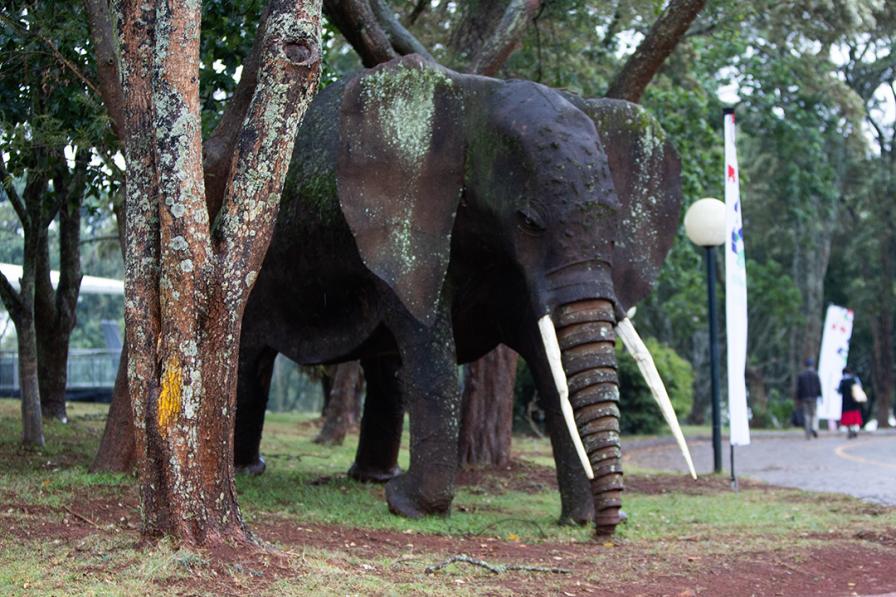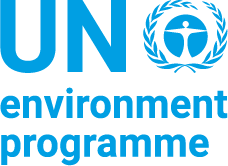About
The United Nations Science-Policy-Business Forum on the Environment (UN-SPBF) convened a day-long Special Session at UNEA-6. Building on recent UN-SPBF regional and thematic processes and outcomes of expert groups, and with a focus on “solution-driven thought-leadership,” the day was organized around moderated, interactive debates and deep-dive segments introducing perspectives and contributions from multiple sectors and stakeholders.
Final report
Summary report 27 February 2024
All coverage
“Let us be good ancestors and better neighbors.”
Echoing an impassioned call by UN Environment Programme (UNEP) Children and Youth delegate Olga Skaredina, these words from Maria Ivanova, Northeastern University, encapsulated both the substantive scope and the spirit of the Special Session of the UN Science-Policy-Business Forum (UN-SPBF) at the sixth session of the UN Environment Assembly (UNEA-6).
The packed agenda featured mini-TED inspirational talks and panel sessions with more than 100 speakers, from environment ministers, UNEA negotiators, and heads of international policy and scientific organizations, to civil society advocates and business leaders. The discussions coalesced around a search for innovative, inclusive, and sustainable solutions for the triple planetary crisis and other intractable environmental and social challenges facing the global community.
Recurring themes in the discussions included climate justice and intergenerational equity, multistakeholder collaboration, and the imperative of creating room for citizen scientists, smallholder farmers, Indigenous Peoples, and other marginalized groups to bring truly contextualized solutions and a moral compass to technological innovations and governance processes.
As summarized by Janez Potočnik, Co-Chair, International Resource Panel, who shared reflections at the start and close of the day, four major transformations are needed to tackle these challenges:
- Ensuring economies function to deliver fundamental needs;
- Changing mindsets to understand that destroying nature means destroying humanity;
- Moving from extraction-based to creation-based production; and
- Building new cooperation-based social and political models which recognize that a safer and more equal world is a precondition to improving our collective resilience.
With a focus on financing nature-based solutions, three high-level plenary panels convened during the event. Key themes addressed included:
- the funding gap in annual investments in nature-based solutions, currently around USD 200 billion, against the estimated USD 542 billion needed to meet climate, biodiversity, and land degradation targets by 2030;
- turning significant nature-negative finance flows which amount to almost USD 7 trillion per year, towards more nature-positive outcomes;
- scaling up the investments needed to protect critical ecosystems in Africa, estimated to be around USD 21 billion annually by 2030; and
- successful experiences with innovative financial mechanisms, such as debt-for-climate-and-nature swaps, as an integrated approach to address the intertwined challenges of debt, climate, and nature.
The discussions were guided by recent flagship publications and reports, including UNEP’s State of Finance for Nature 2023 Report and the Global Resources Outlook 2024.
Two thematic roundtables also convened during the day. The first round of discussions in the morning focused on sector-wide transformations for three highly polluting industries: mining, fashion, and urban construction. In the afternoon, interactive discussions addressed the themes of early warning systems, the business case for soil health, and how to pay for the climate and nature-positive transitions.
On responsible mining, the discussions highlighted the importance of standards, circular economy strategies, technological developments, access to information, and corporate accountability to ensure the sustainability of the low-carbon energy transition, infrastructure growth, and digitalization that are driving growth in global demand for transition minerals.
The session on sustainable fashion discussed the role of extended producer responsibility regulations in tackling the “take-make-waste” ethos of the fashion industry across the entire value chain and incentivizing, inter alia, sustainable product design and business models, fair labor practices, and recycling and upcycling of products.
A session on the urban environment considered how near-zero emission and resilient buildings can play a pivotal role in reducing urban pollution levels and combatting climate change. Panelists identified, inter alia: designing buildings that make better use of natural resources such as sunlight and ventilation; changing the behavior of building occupants to consume less energy; and focusing not just on buildings, but on the built environment, in order to cover both formal buildings and informal settlements.
A roundtable on financing nature-positive transitions focused on “the how” of moving from planning to effective implementation of climate and sustainability strategies. Speakers emphasized the need for national-level integrated financing plans, underpinned by strong legal and policy frameworks, as well as the role of the insurance sector. The need for country ownership was underlined, in recognition that countries may pursue different transition paths as they have different needs and priorities.
Discussions on soil health focused on innovative soil restoration approaches at the local level to tackle an estimated annual loss of 24 billion tons of topsoil, which has devastating impacts on biodiversity, food security, and climate resilience. Speakers highlighted a range of alternatives to the unsustainable use of pesticides and nitrogenous fertilizers, with important co-benefits in improving soil organic carbon and agricultural biodiversity.
How to address the paradox of too much data for some, while others need more data in order to generate actionable information for the local level, was the central theme of another panel.The discussions explored integrated early warning systems for the planet as one promising approach to address this challenge by providing access to data assets from the space community to develop customized solutions for different contexts.
The overwhelming consensus at the end of a long day was that the transition to nature-positive and socially-inclusive development needs both “hearts and minds.” As many noted, the work of the UN-SPBF exemplifies why it is crucial to focus on making a solid business case, while also driving behavior change towards more sustainable consumption and production practices from the local to global levels.
View past and future events
Past event
1st Meeting of the UNEP Open-ended Committee of Permanent Representatives (OECPR-1)
Past event
UNEA-1
Past event
2nd Meeting of the UNEP OECPR
Past event
UNEA-2
Past event
UNEA-3
Past event
1st Meeting of the Ad Hoc Open-Ended Expert Group on Marine Litter and Microplastics
Past event
Negotiation of the Summary for Policy Makers of the 6th Global Environment Outlook (GEO-6)
Past event
4th Meeting of the OECPR and 4th Session of UNEA
Past event
2nd Global Session UN Science-Policy-Business Forum on the Environment
Past event
4th Meeting of the Ad-hoc Open-ended Expert Group on Marine Litter and Microplastics (AHEG-4)
Past event
Global Major Groups and Stakeholders Forum (GMGSF)
Past event
Youth Environment Assembly (YEA)
Past event
5th Meeting of the Open-Ended Committee of Permanent Representatives to UNEP (Online Session)
Past event
UN Science-Policy-Business Forum on the Environment (2021)
Past event
UNEA-5 (Online Session)
Past event
Inaugural Regional Session of the UNEP Science-Policy-Business Forum for Asia and the Pacific (AP-SPBF 2021)
Past event
Online Global Major Groups and Stakeholders Forum (GMGSF)
Past event
Youth Environment Assembly 2022
Past event
UNEA-5.2, OECPR-5.2 and UNEP@50
Past event
2nd UNEA Cities and Regions Summit
Past event
UNEA Flagship Side Events
Past event
Big Data for the Planet Breakfast and Ministerial Dialogue: The Next 50 Years
Past event
OEWG1: Science-Policy Panel to Contribute Further to the Sound Management of Chemicals and Waste and to Prevent Pollution
Past event
OEWG1-2: Science-Policy Panel to Contribute Further to the Sound Management of Chemicals and Waste and to Prevent Pollution
Past event
2nd Meeting of the Ad Hoc Open-ended Working Group on a Science-Policy Panel to Contribute Further to the Sound Management of Chemicals and Waste and to Prevent Pollution
Past event
UNEA-6 and OECPR-6
Past event
Global Major Groups and Stakeholders Forum (GMGSF) at UNEA-6
Past event
UN Science-Policy-Business Forum on the Environment Special Sessions at UNEA-6
Past event
3rd Meeting of the Ad Hoc Open-ended Working Group on a Science-Policy Panel to Contribute Further to the Sound Management of Chemicals and Waste and to Prevent Pollution
To receive free coverage of global environmental events delivered to your inbox, subscribe to the ENB Update newsletter.
High Level Opening Session: Inspirational Chats on Shaping Our Common Future
High Level Panel: Tracking Financial Flows to Nature-based Solutions
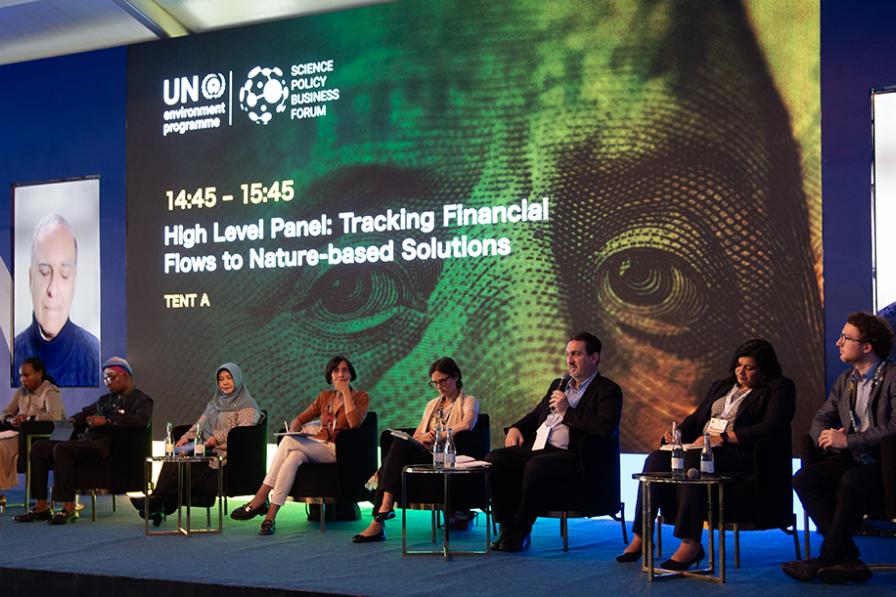
L-R: Pavan Sukhdev, CEO, GIST Impact (online); Claudine Uwera, Minister of State for the Environment, Rwanda; Iziaq Adekunle Salako, Minister of State for Environment, Nigeria; Laksmi Dhewanthi, Deputy Minister, Ministry of Environment and Forestry, Indonesia; Maria Susana Muhamad, Minister of Environment and Sustainable Development, Colombia; Eva Mayerhofer, Head of Environmental Policy and Biodiversity, European Investment Bank; Tony Goldner, Executive Director, Taskforce on Nature-related Financial Disclosures; Reshma Shah, Group Director for Sustainability for Equity Group Holdings; and Florent Kaiser, Global Forest Generation
Plenary Session: The Argument for High-Integrity Carbon Markets
Thematic Roundtable: Responsible Mining in a Resource-Hungry World
Thematic Roundtable: The Urban Environment - The Near-Zero Buildings of the Future
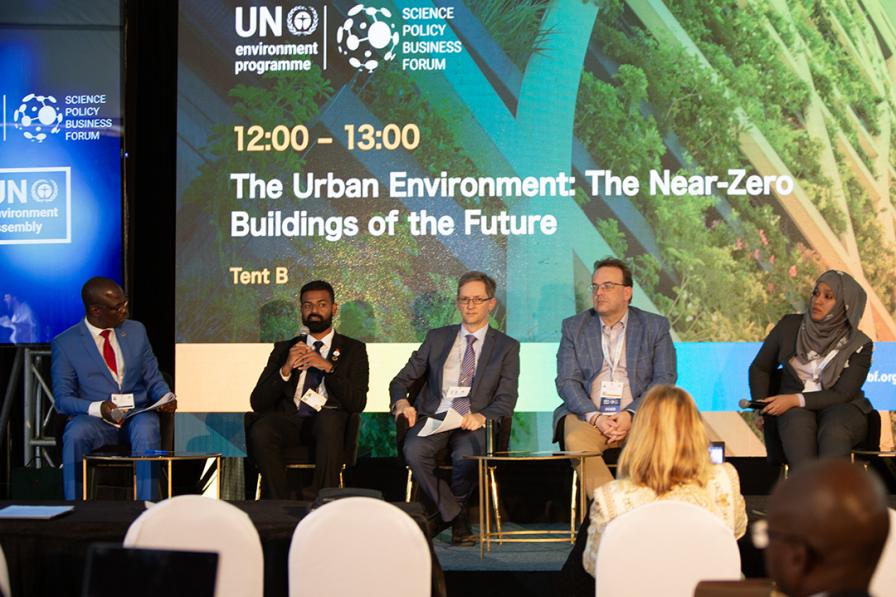
L-R: Moderator Joe Ageyo, Editor in Chief, Nation Media Group; Hassaan Mohamed, Deputy Minister of Climate Change, Maldives; John Thompson, Bureau of Oceans and International Environmental and Scientific Affairs, US; Juergen Weichenberger, Schneider Electric; and Nasra Nanda, CEO, Kenya Green Building Society
Thematic Roundtable: Thread Lightly - Unravelling the Fabric of Sustainable Fashion

L-R: Moderator Erika Kay, CEO, Future Earth US Global Hub; Veluppillai Kananathan, Sri Lanka High Commissioner and Permanent Representative to Kenya; Branson Skinner, Founder, The Or Foundation; Ria Ana Sejpal, Founder, Lilabare; Johanna Lissinger Peitz, Ambassador, Ministry of Climate and Enterprise, Sweden; and Abdullah Muhammed, Business Development Manager, Wama International Group.
Thematic Roundtable: Building the Business Case for Soil Health
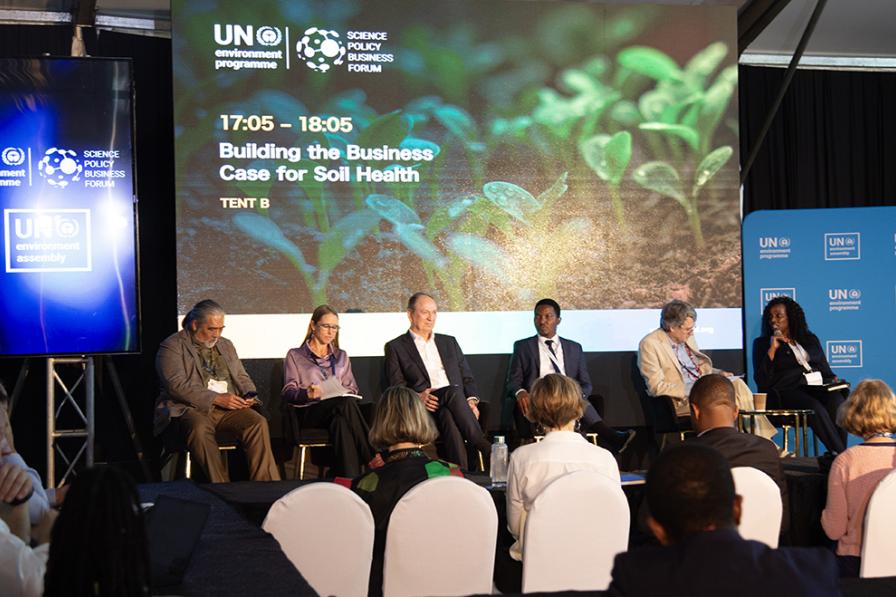
From L-R: A.G Kawamura, Co-Facilitator, Farmers Major Group, UNEP; Leigh Ann Winowiecki, Global Research Lead, World Agroforestry Centre (CIFOR-ICRAF); Arne Cartridge, Special Advisor, Yara; Selemani Saidi Jafo, Minister of State, Tanzania; Mark Sutton, UK Centre for Ecology and Hydrology; and Karimi Thuranira, Kenya Country Manager, OCP Group.
Thematic Roundtable: The Cost of Climate & Nature - Positive Transitions: From Strategy to Action
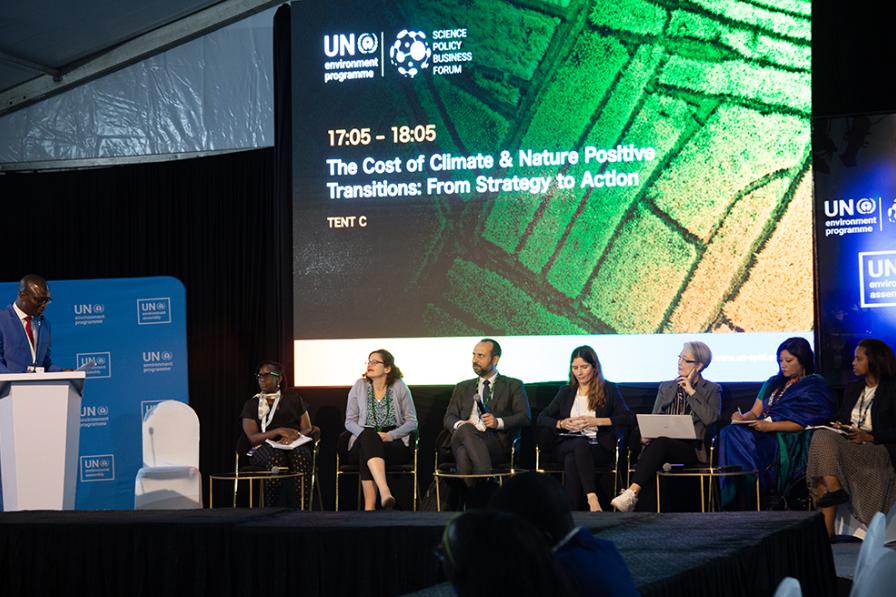
L-R: Moderator Joe Ageyo, Editor in Chief, Nation Media Group; Sylvia Mwangi, Climate Risk Expert, Zep-Re Insurance Company; Marine Collignon, Ministry for Europe and Foreign Affairs, France; Pedro Ivo Ferraz da Silva, Secretary for Climate, Ministry of Foreign Affairs, Brazil; Louise Kessler, I4CE; Kyung Ah Koo, Korea Environment Institute; Mrinalini Rai, Director, Women4Biodiversity; and Davinah Milenge-Uwella, African Development Bank

